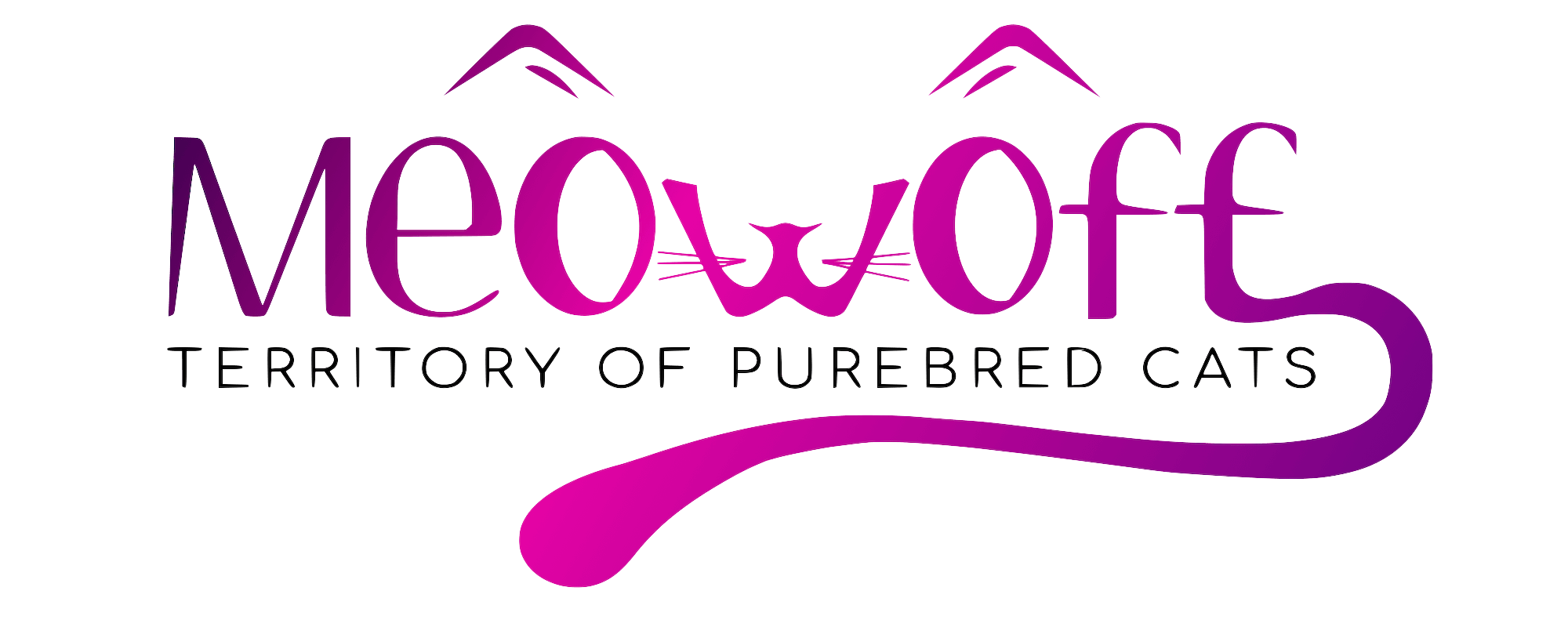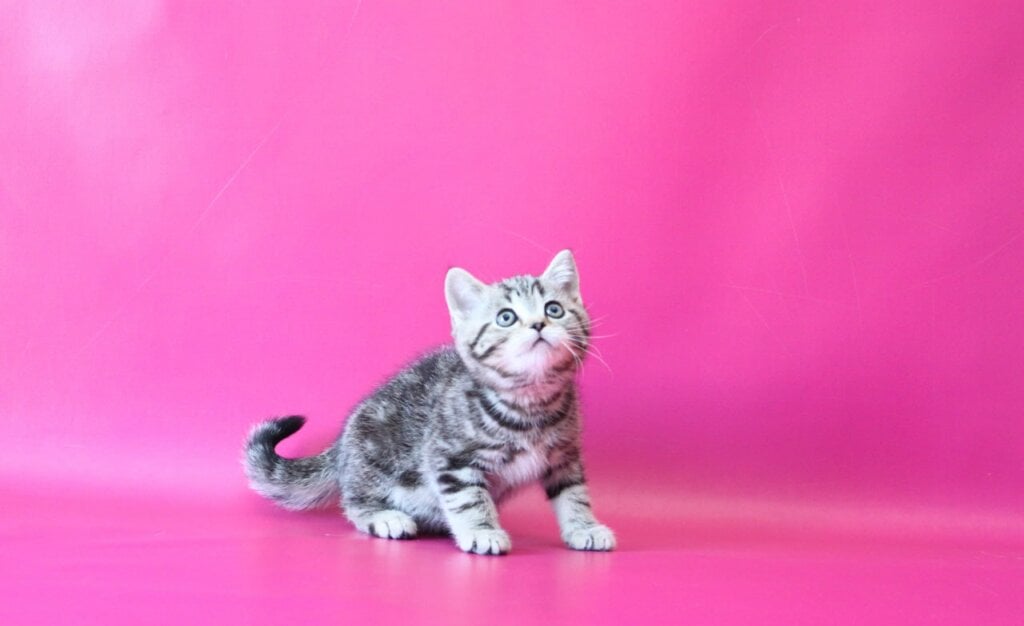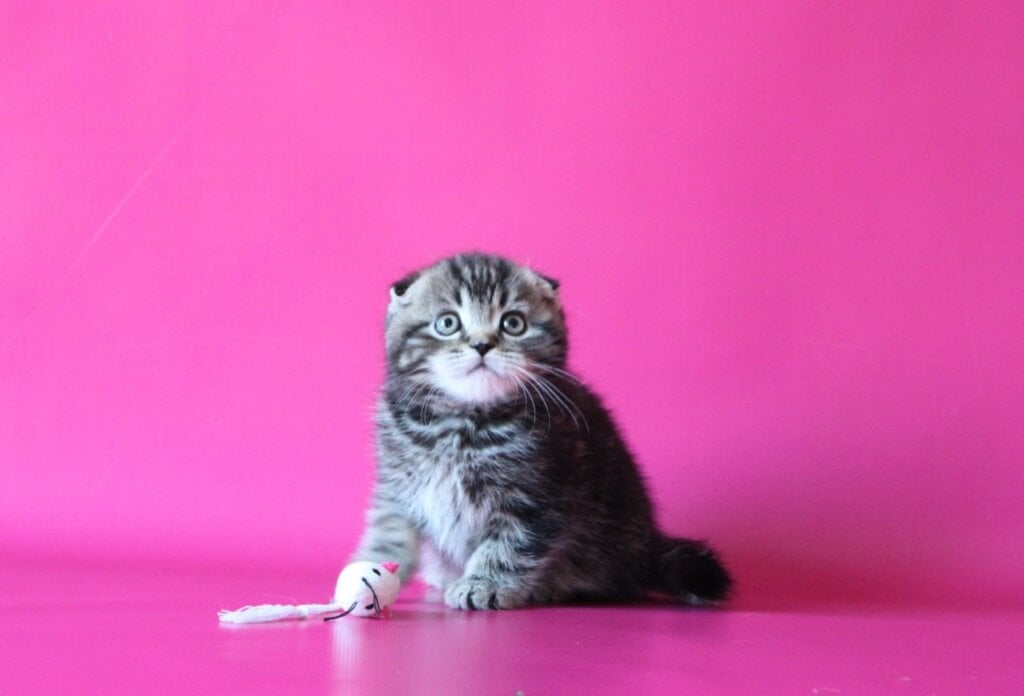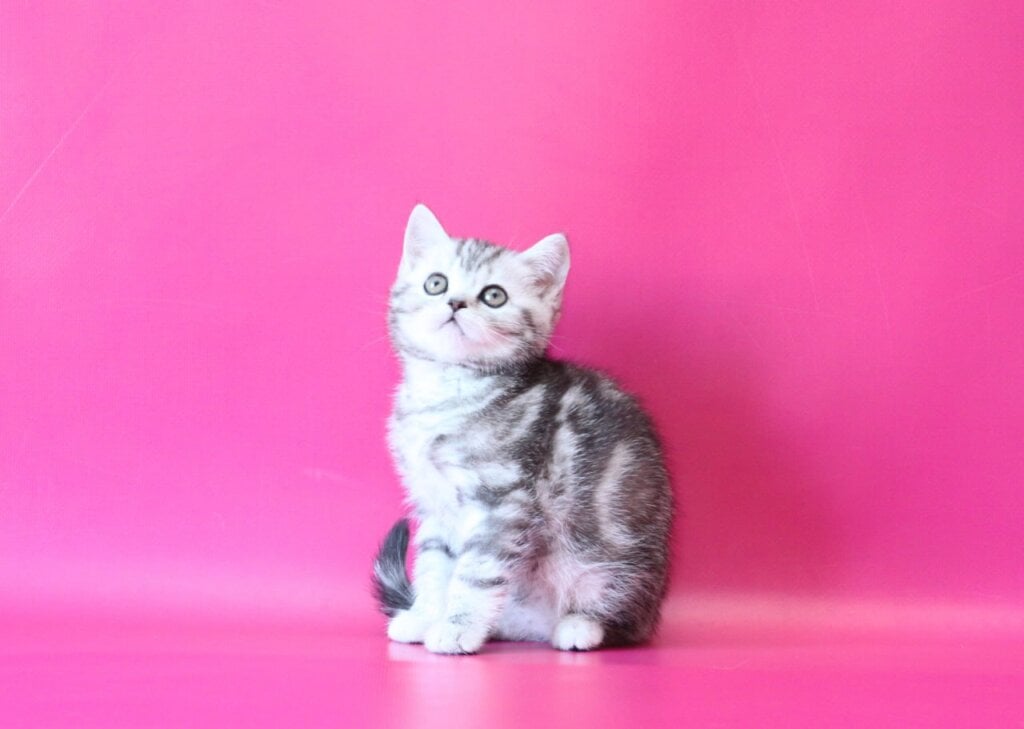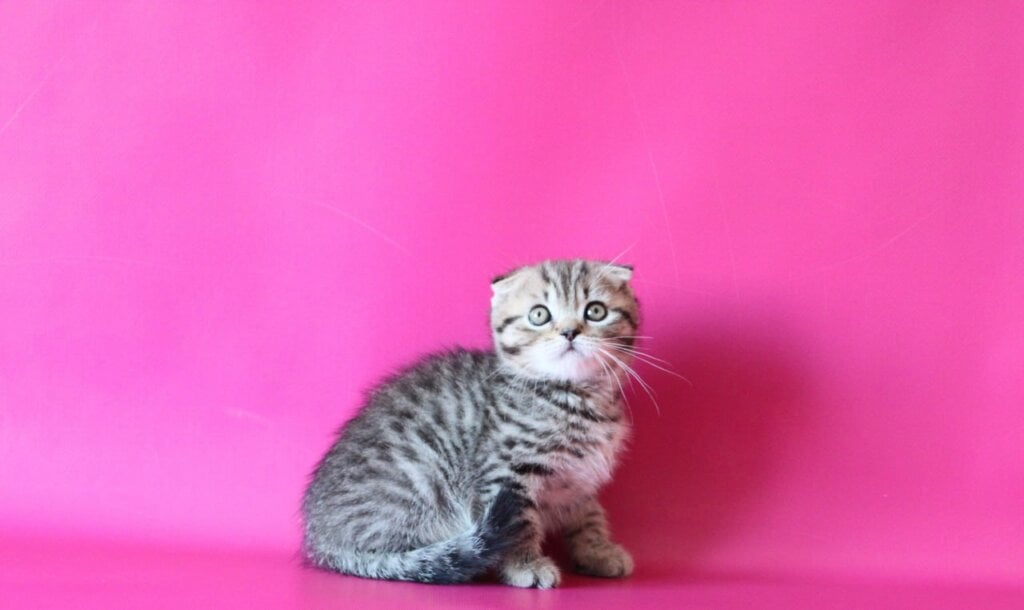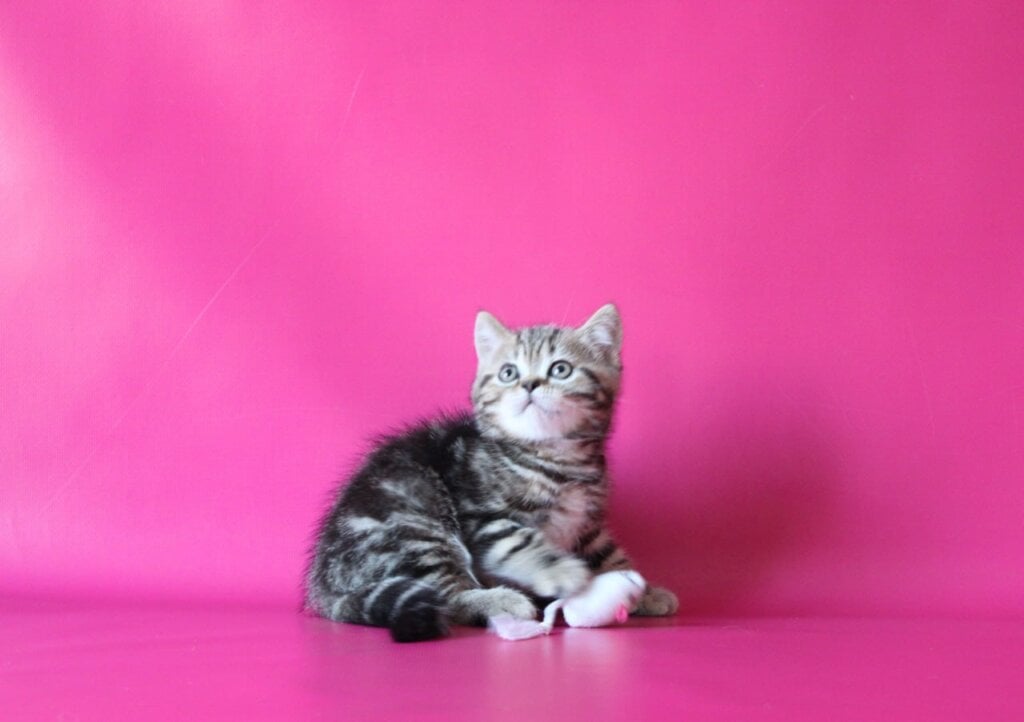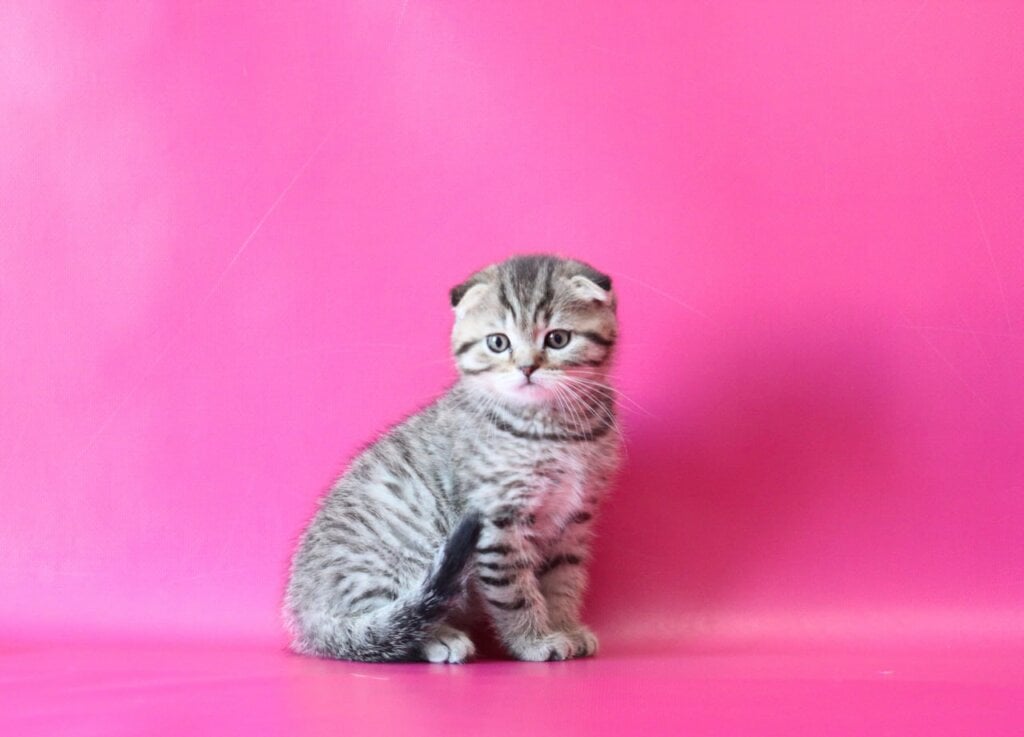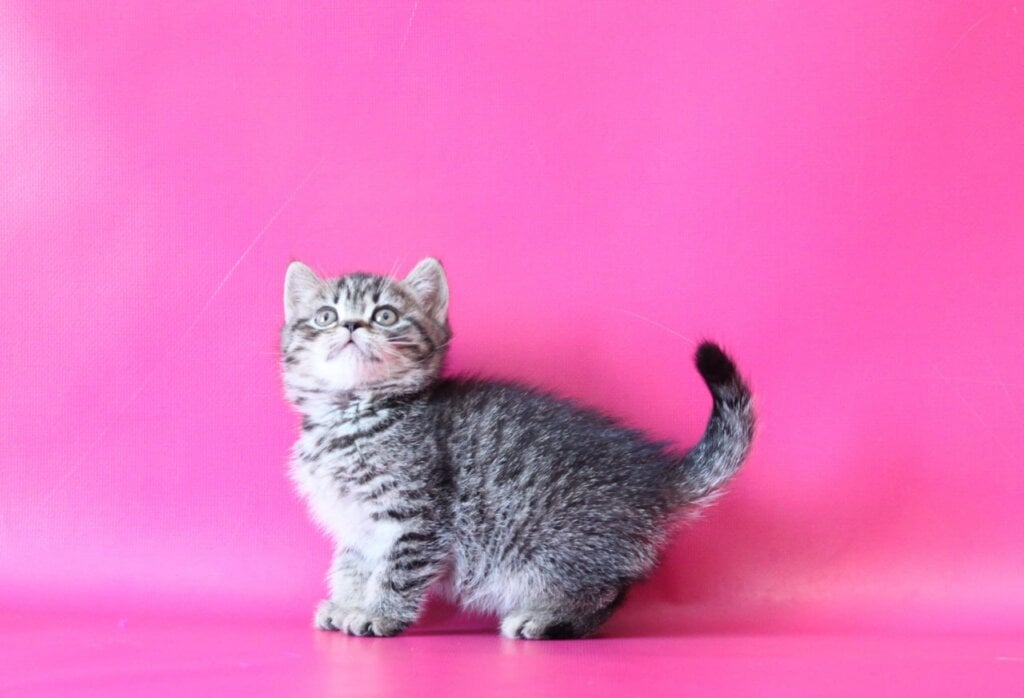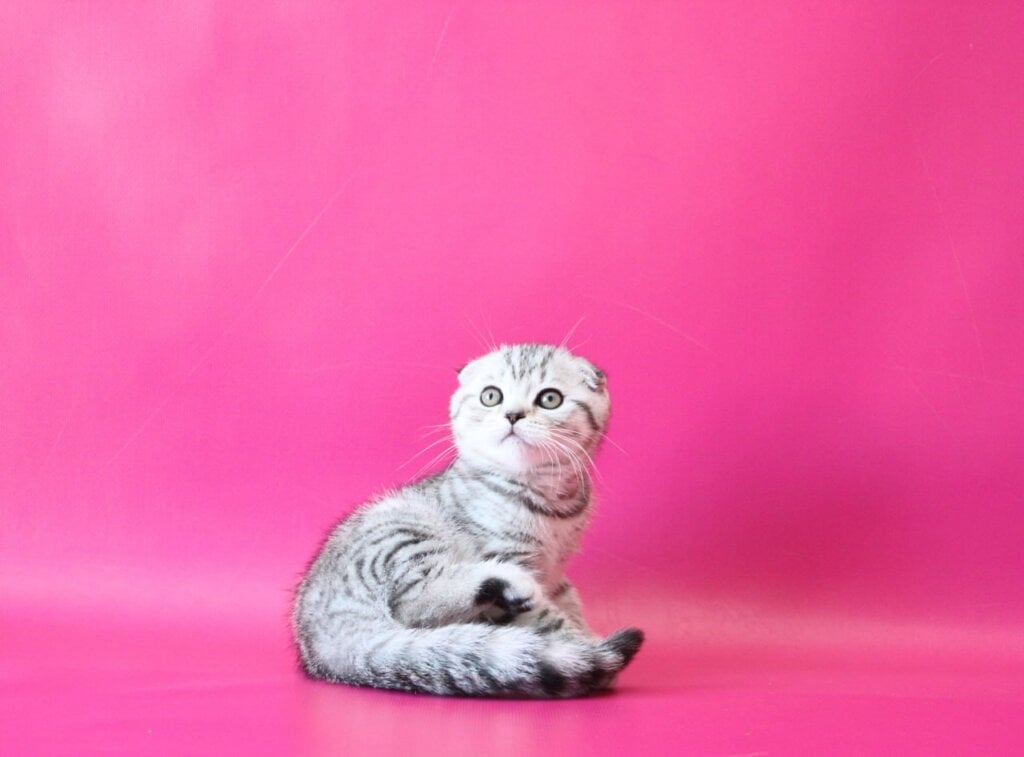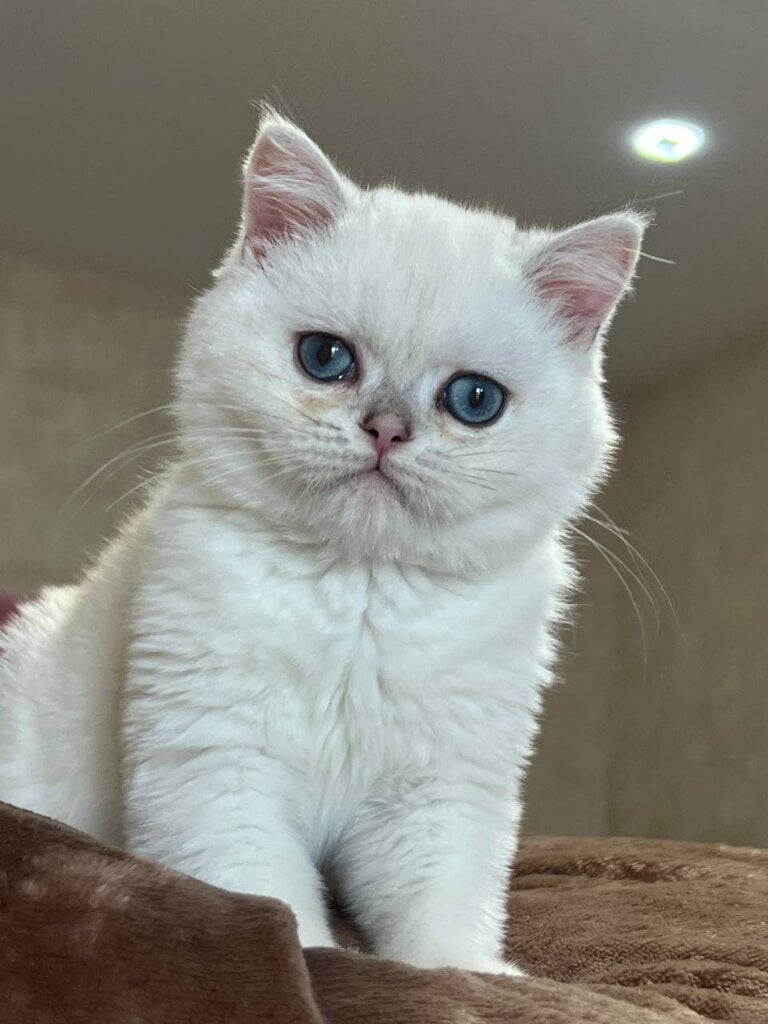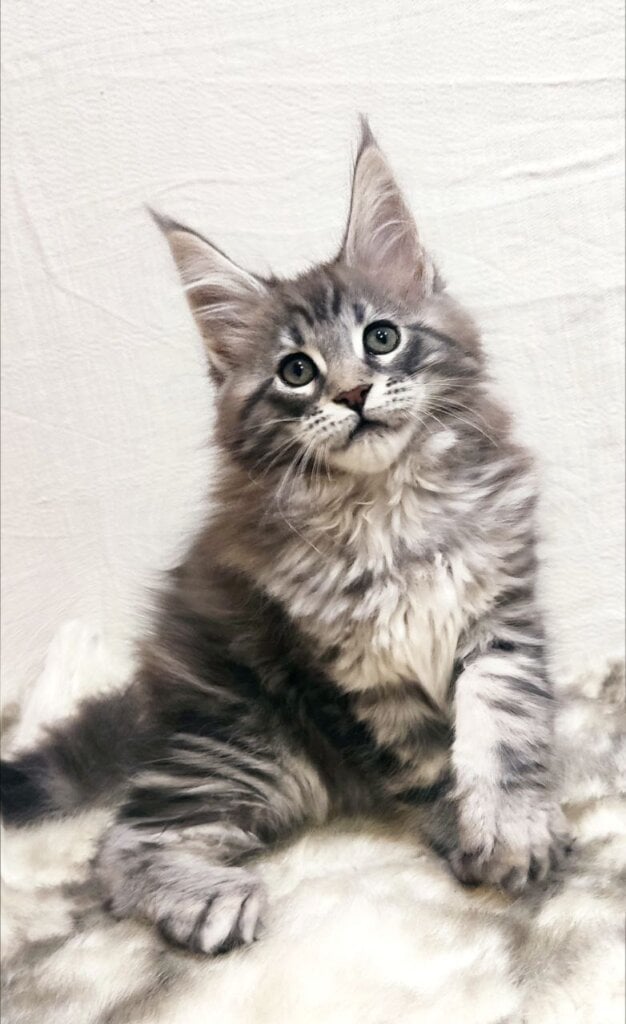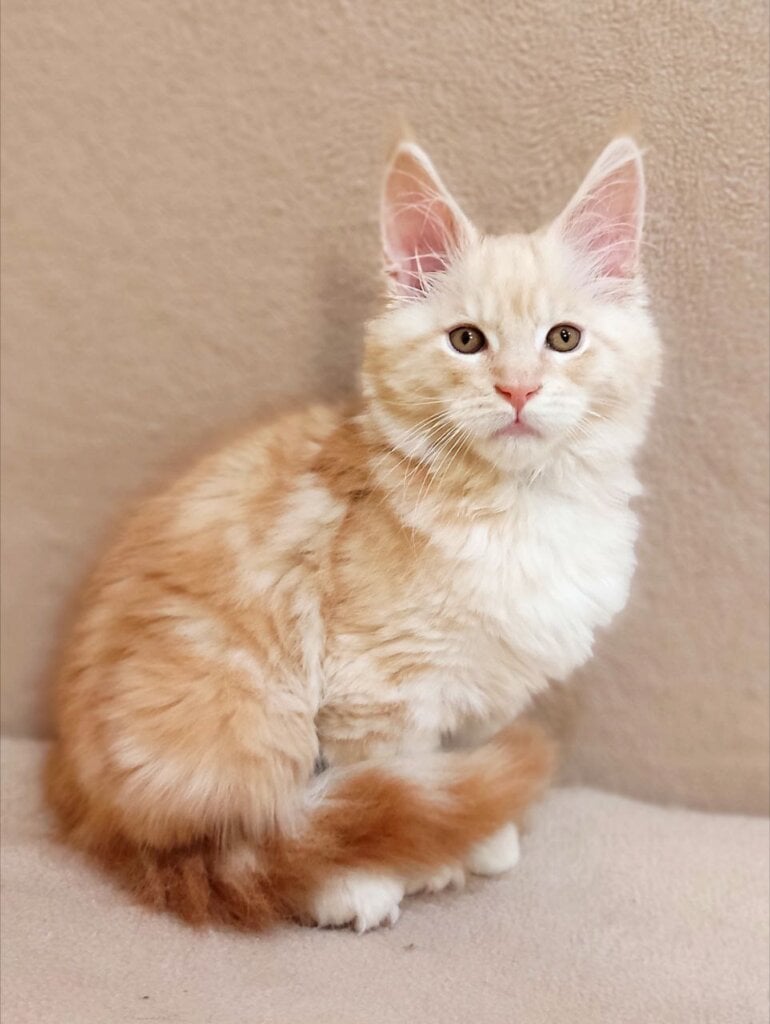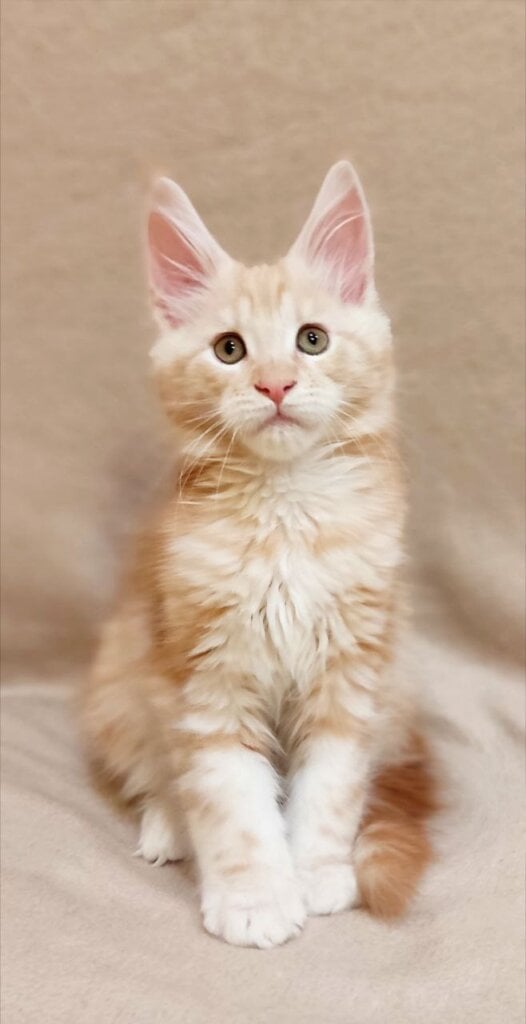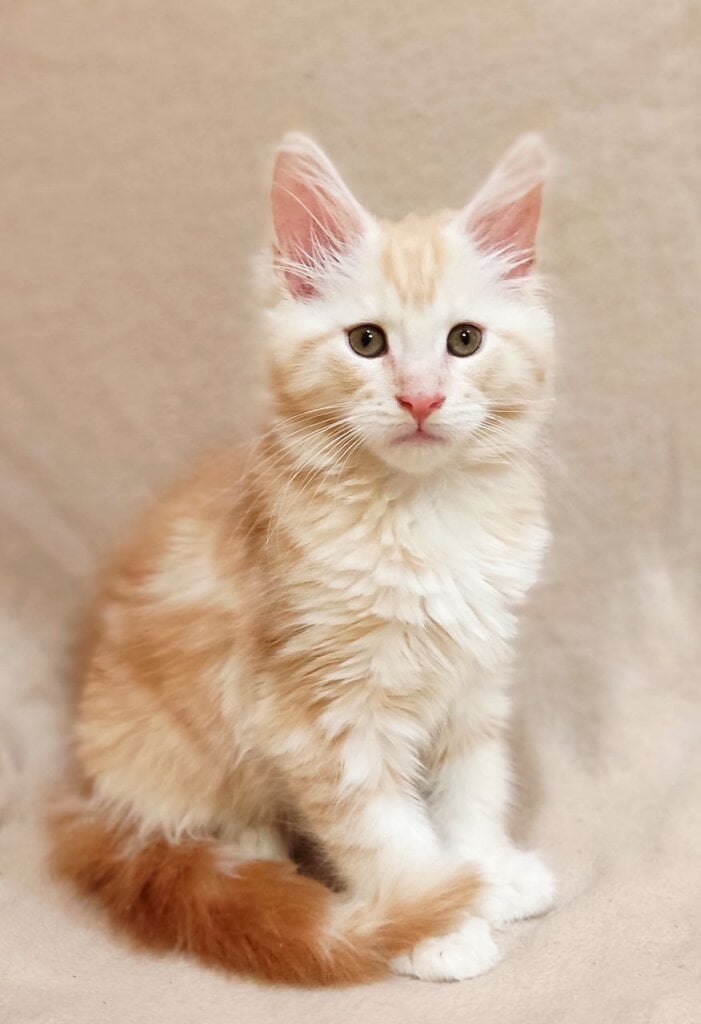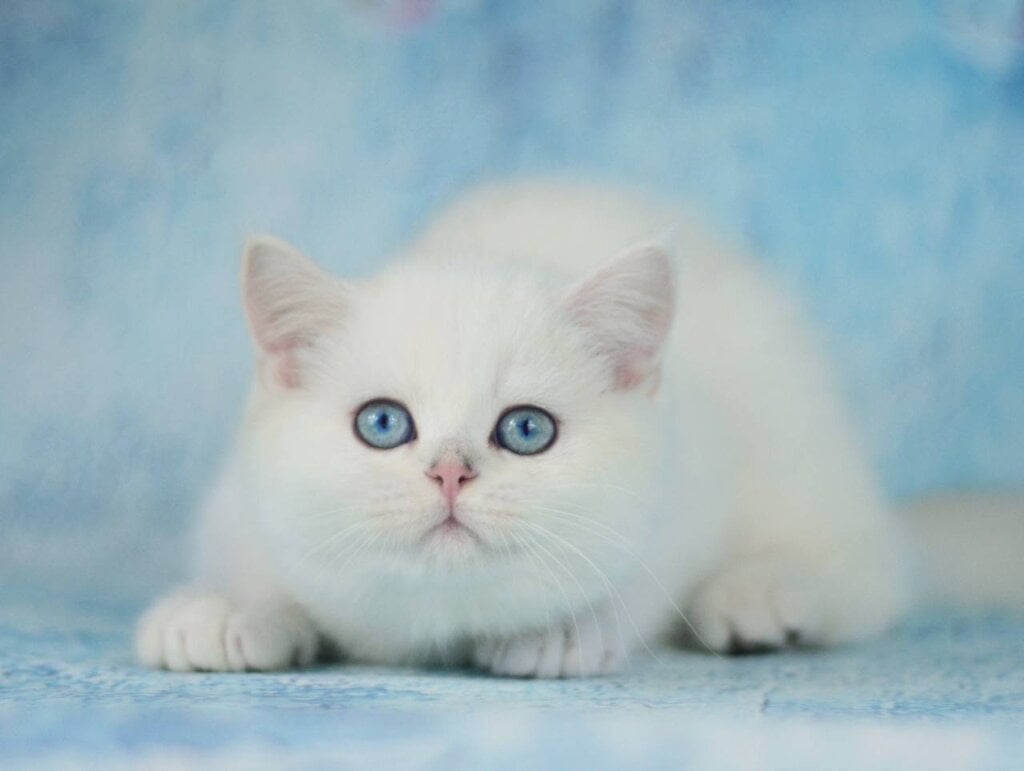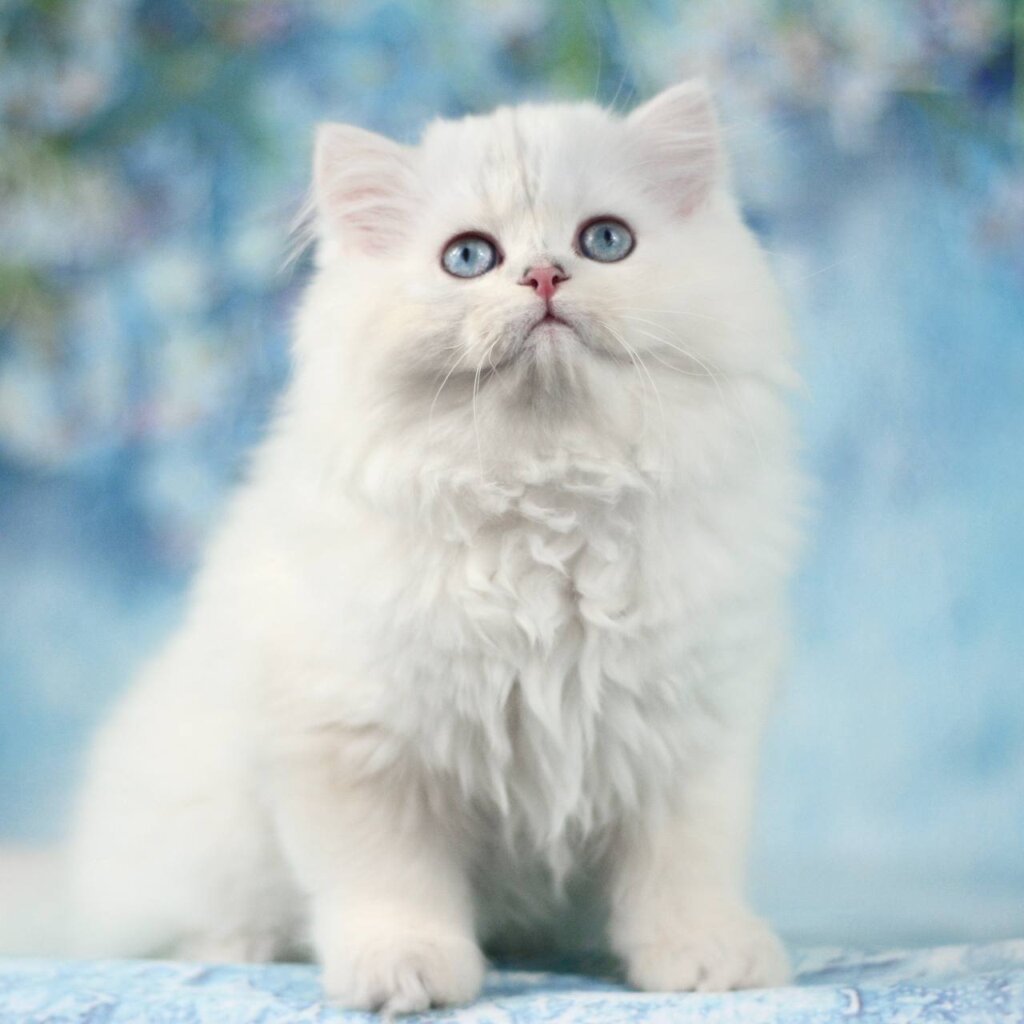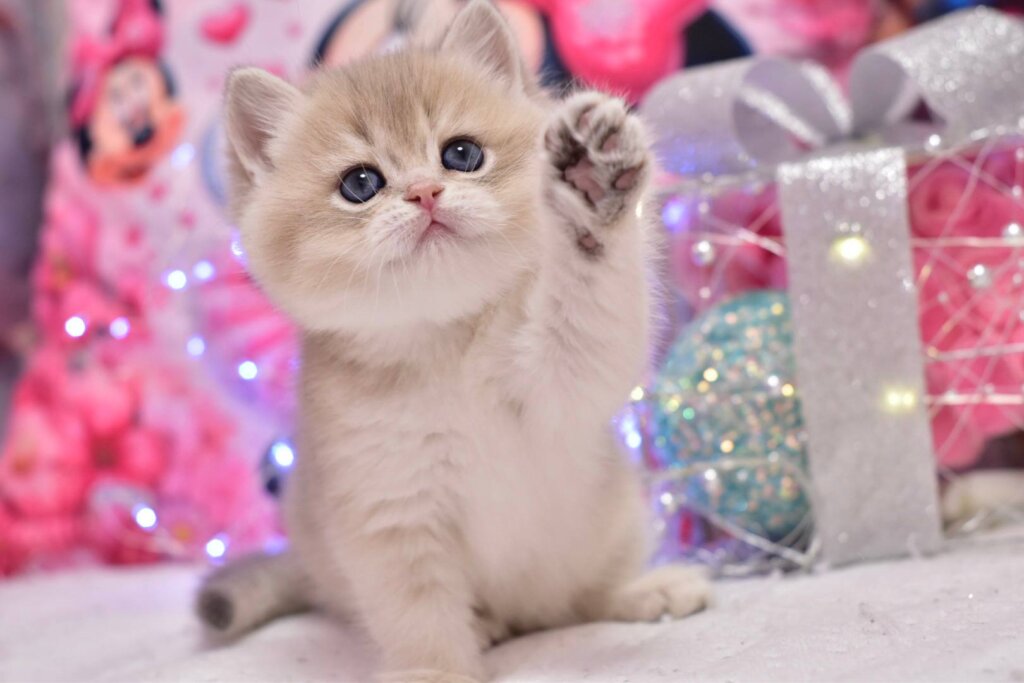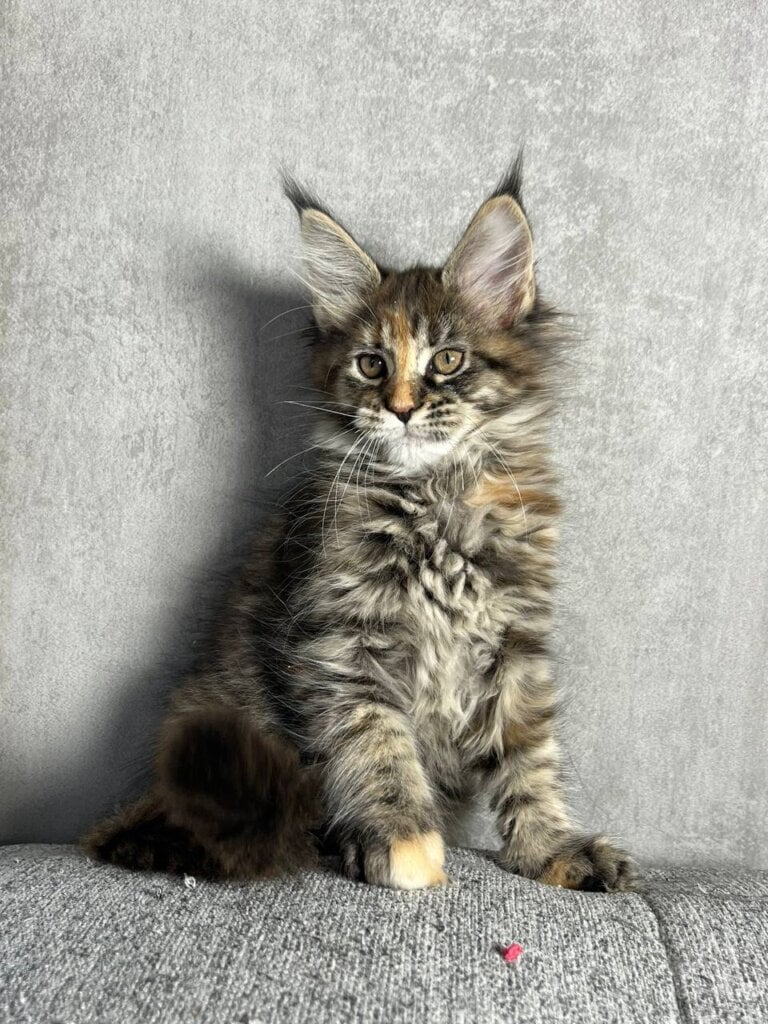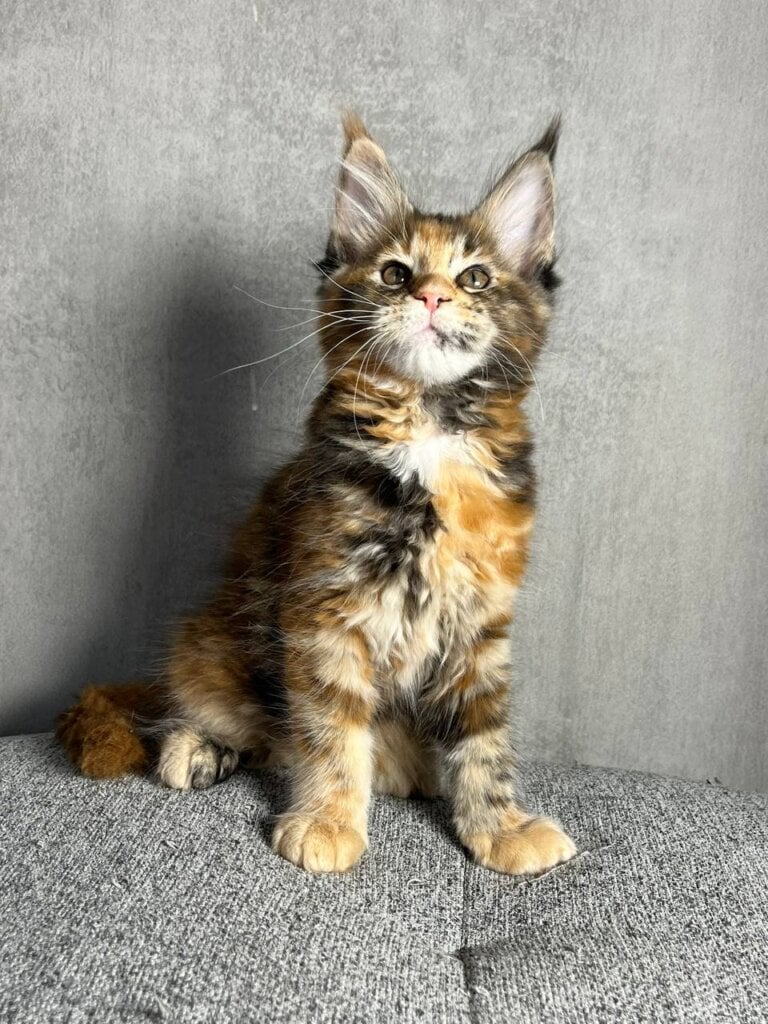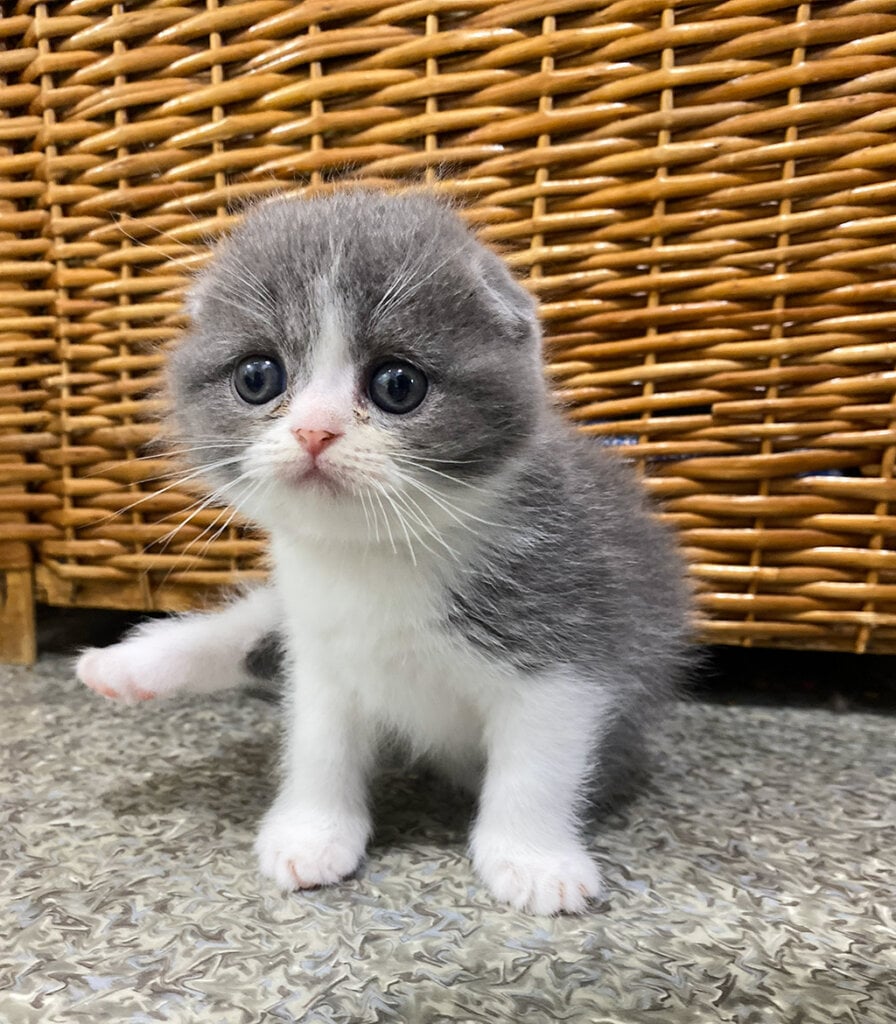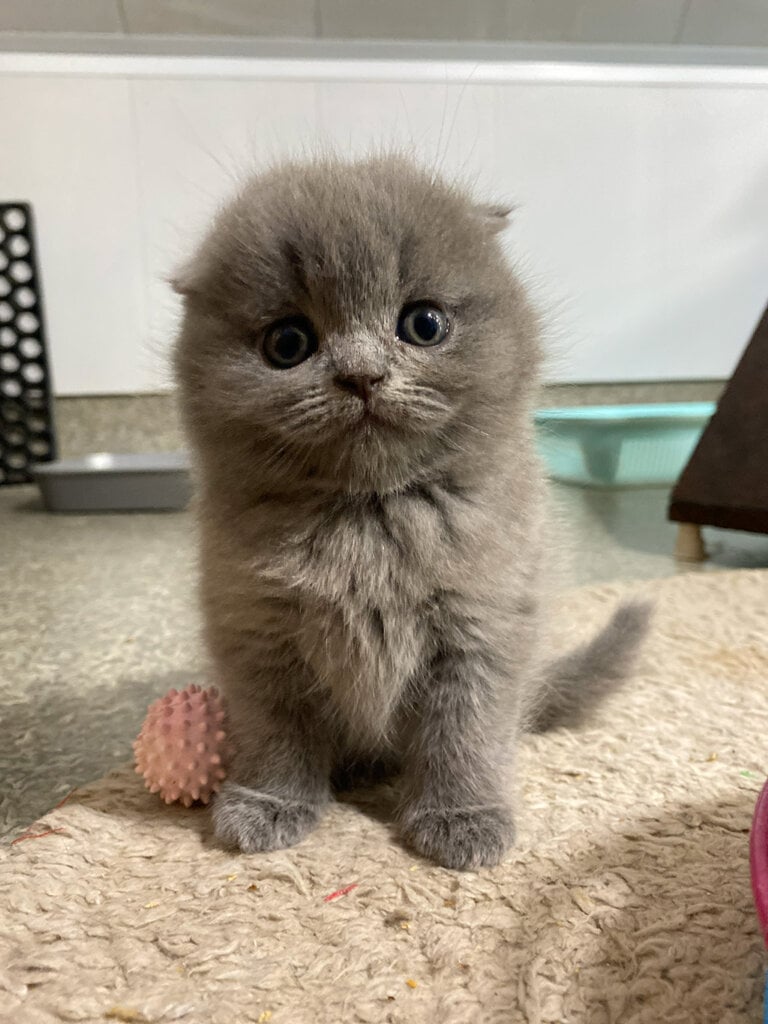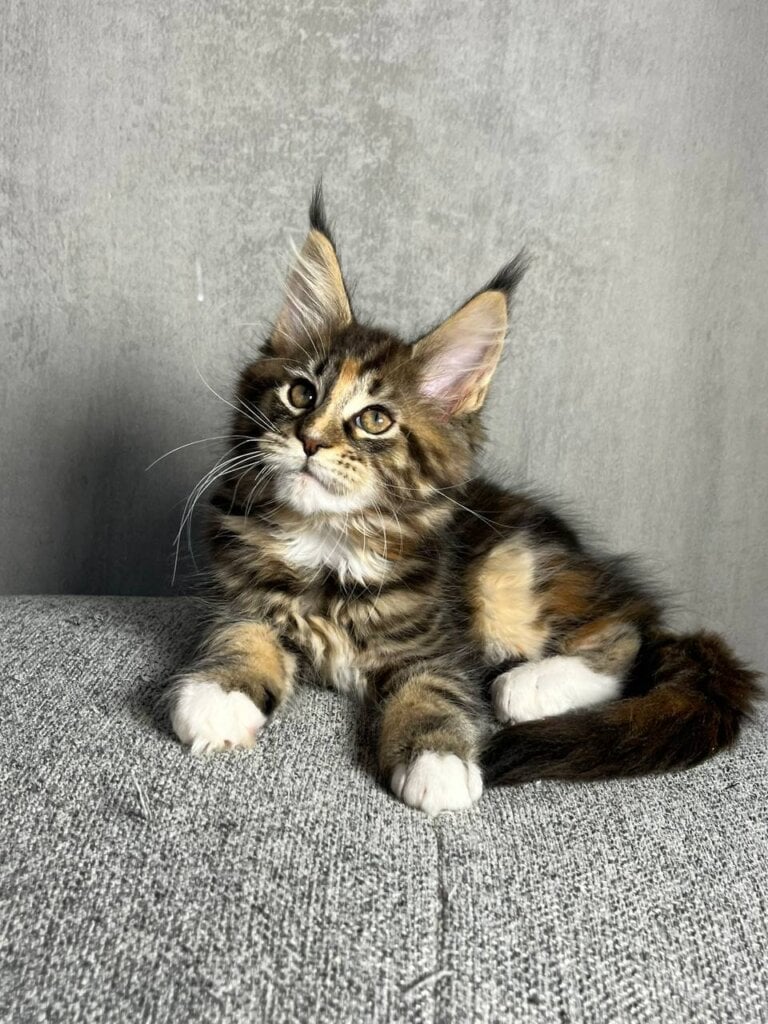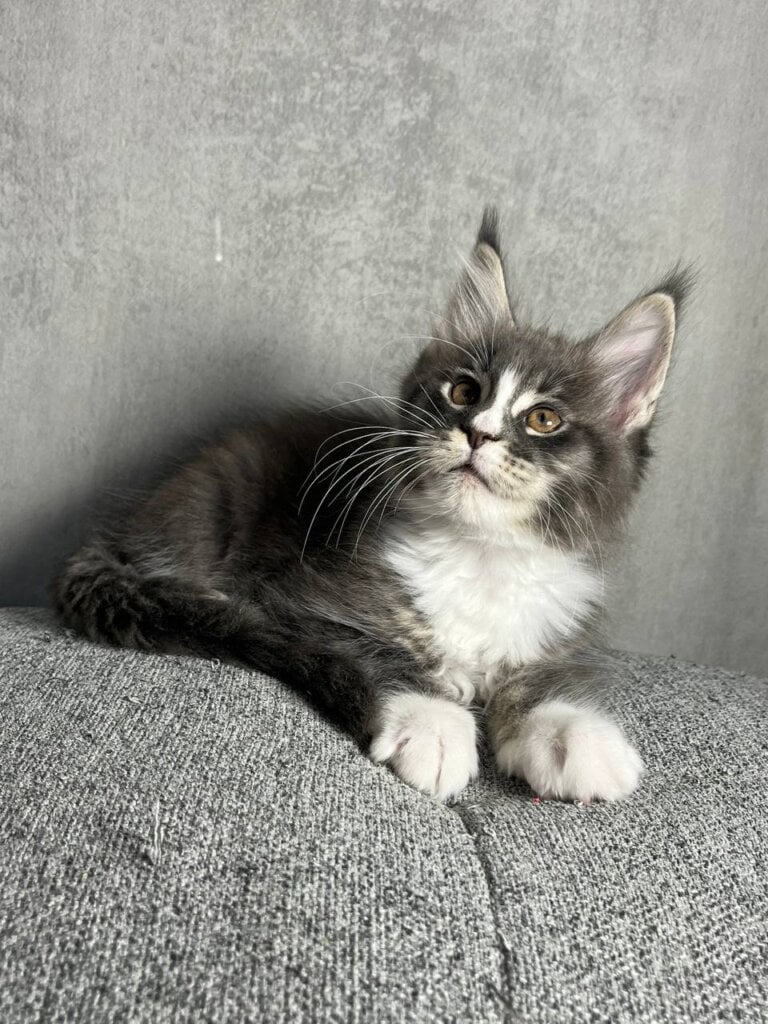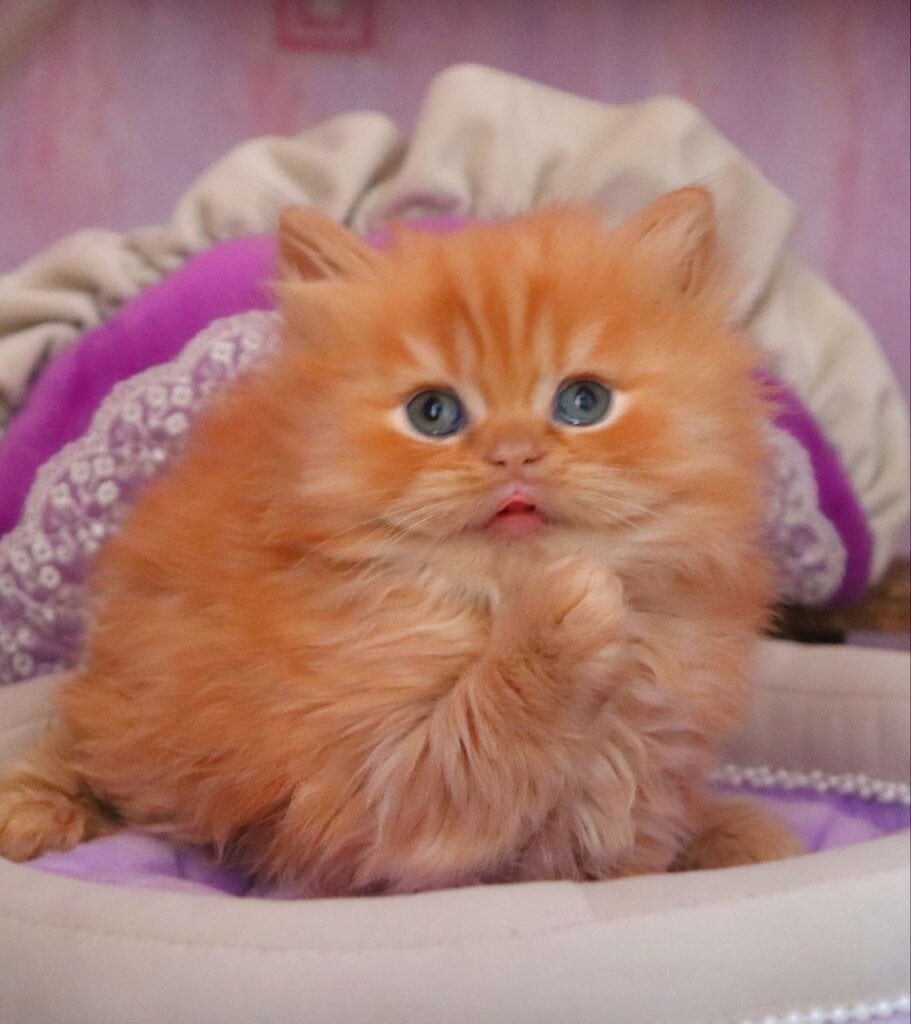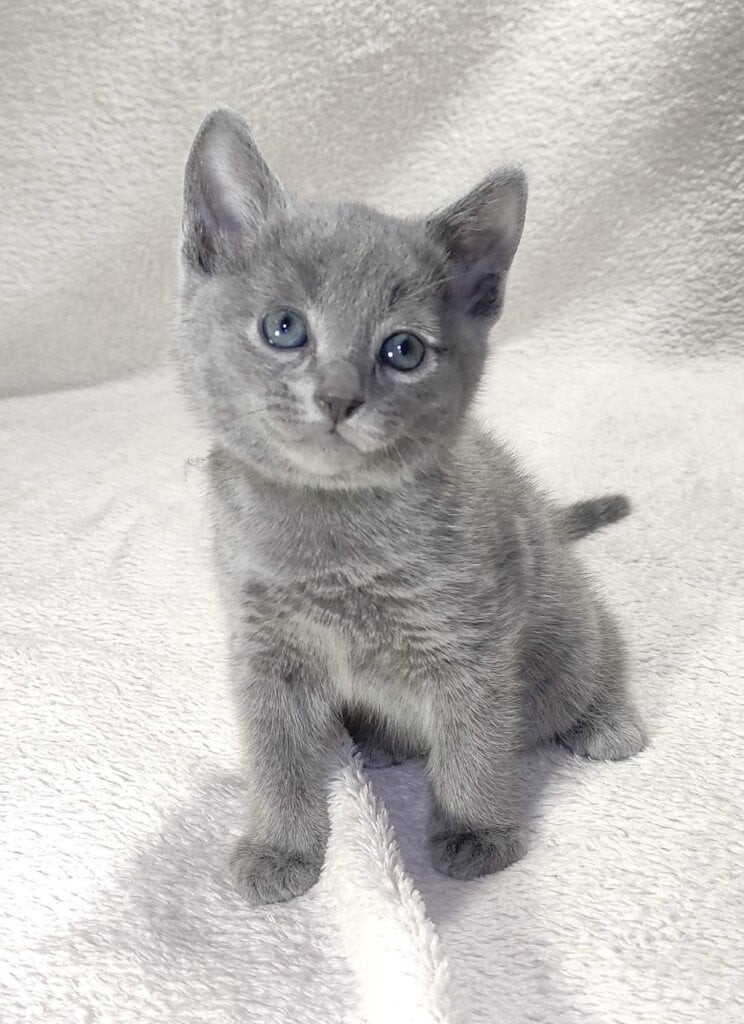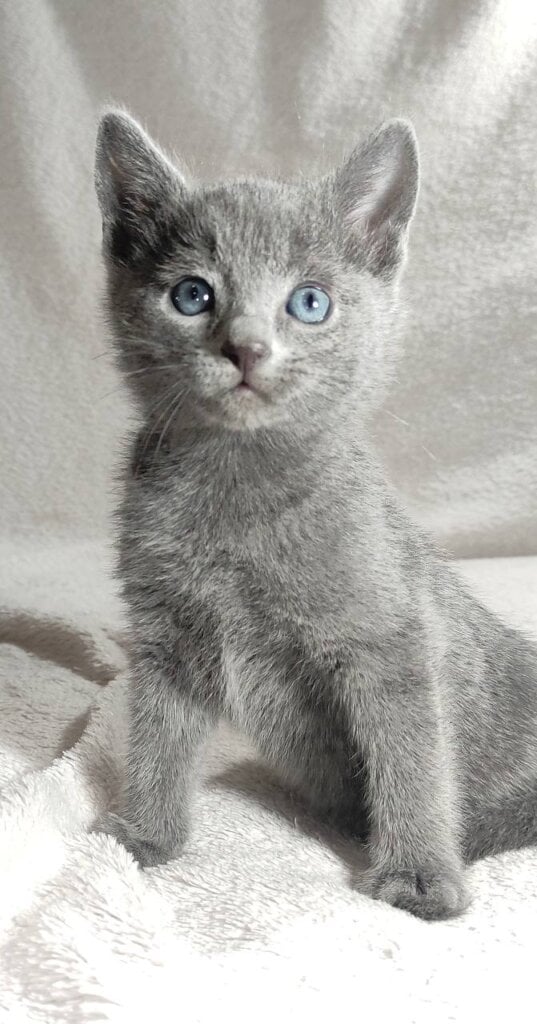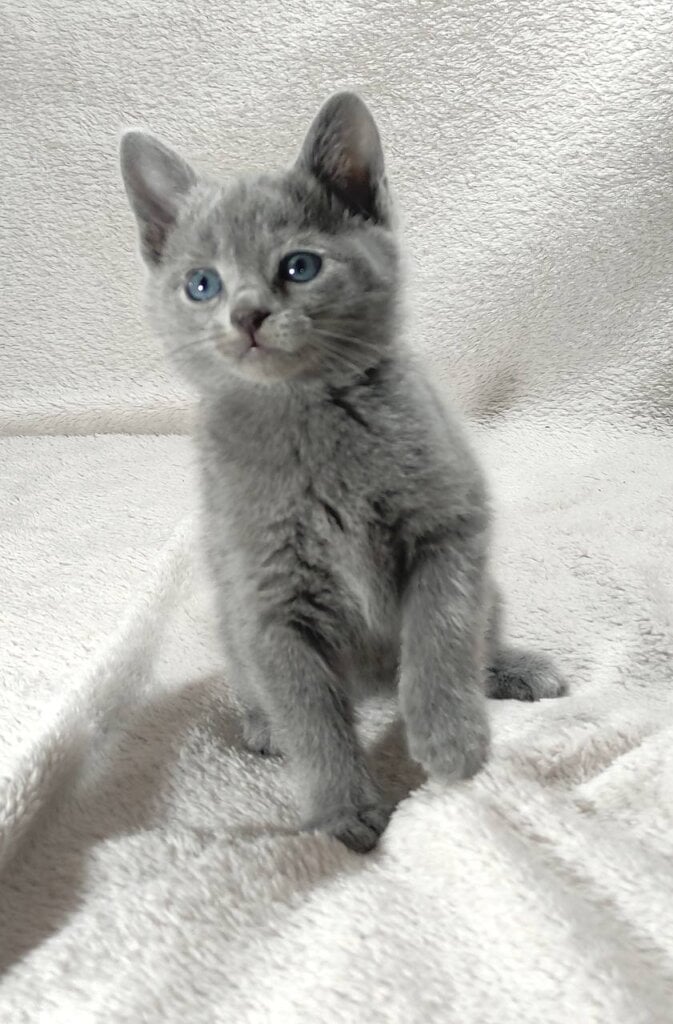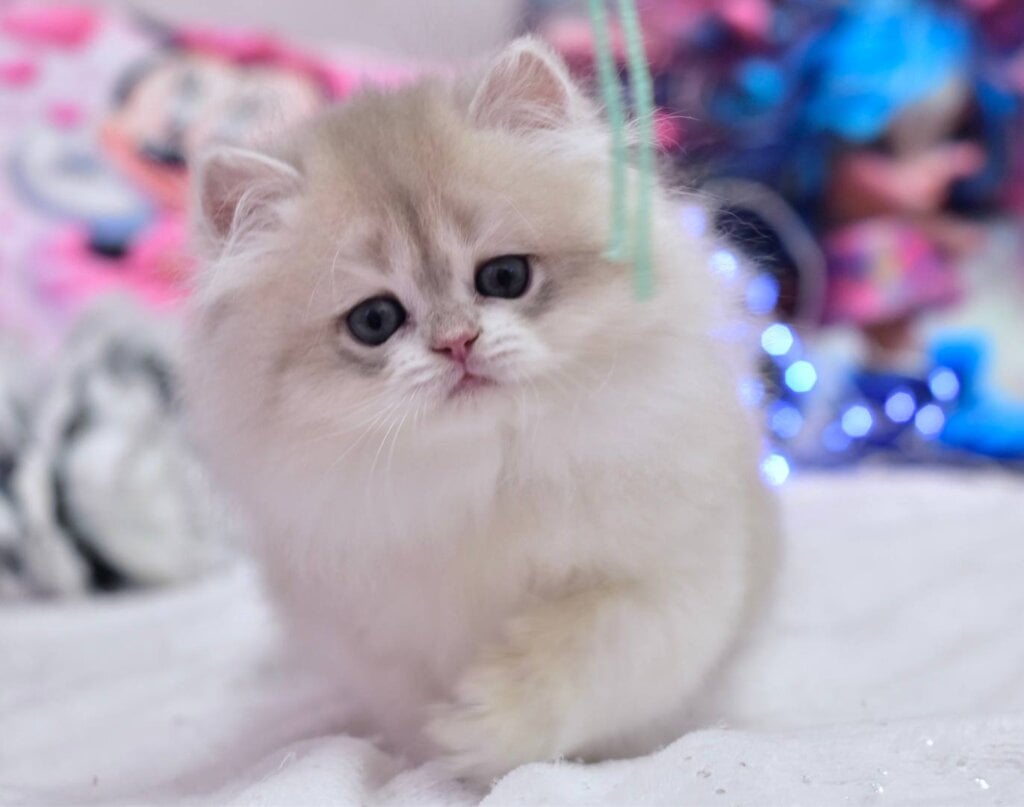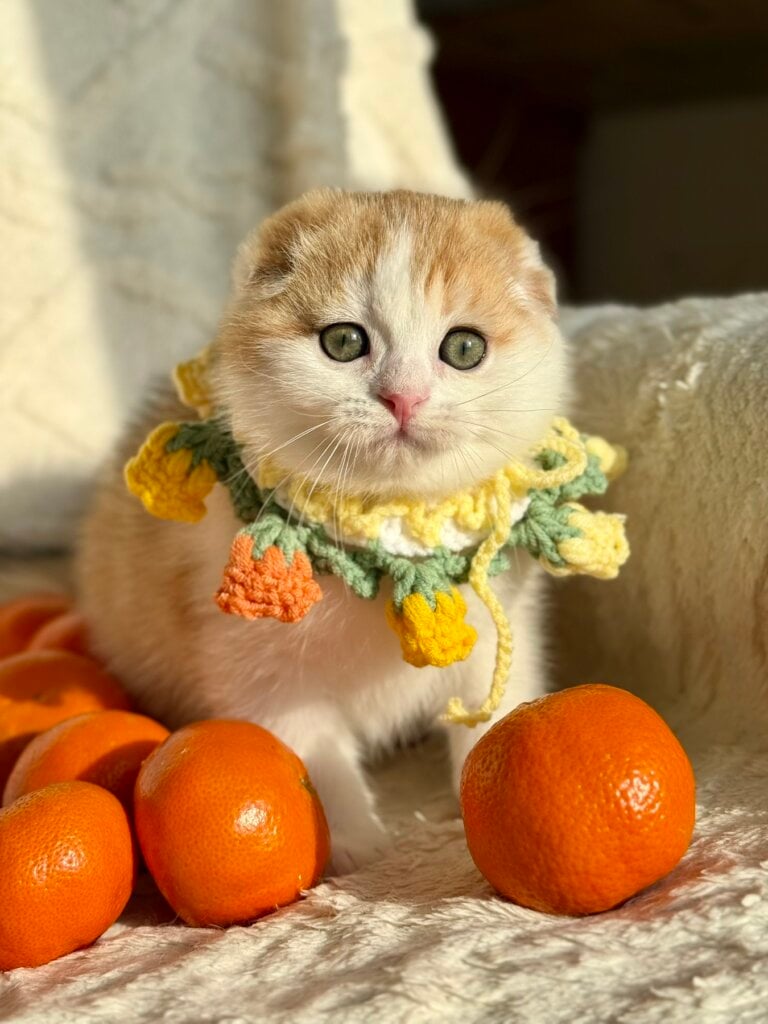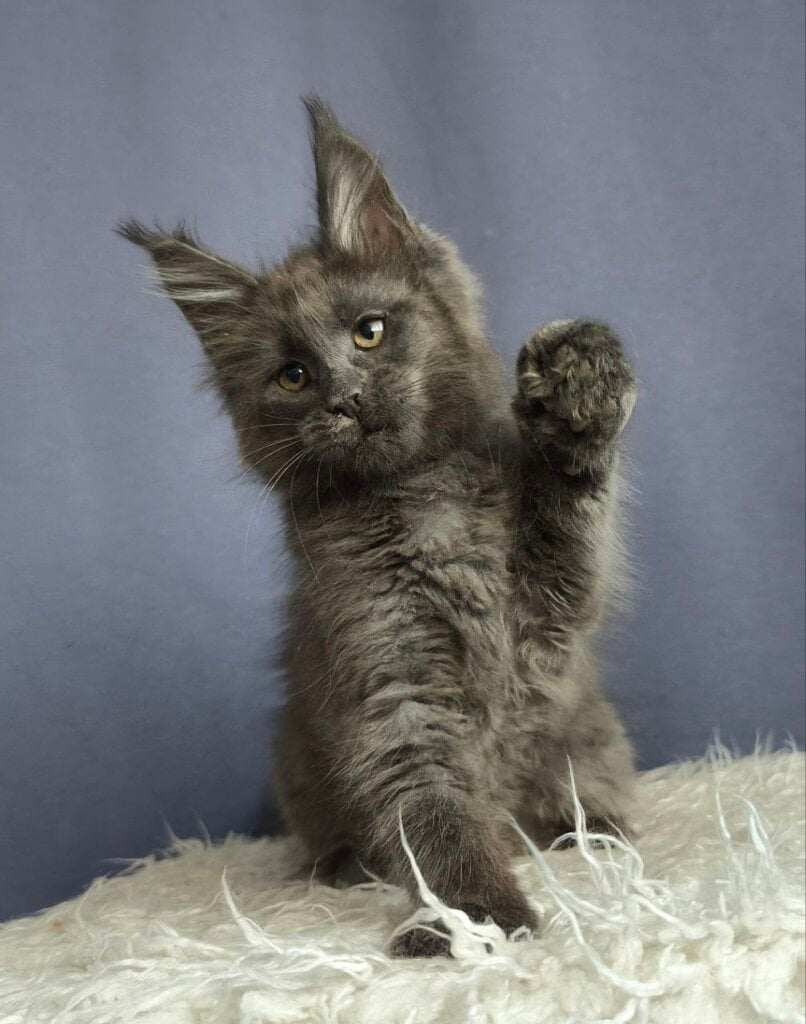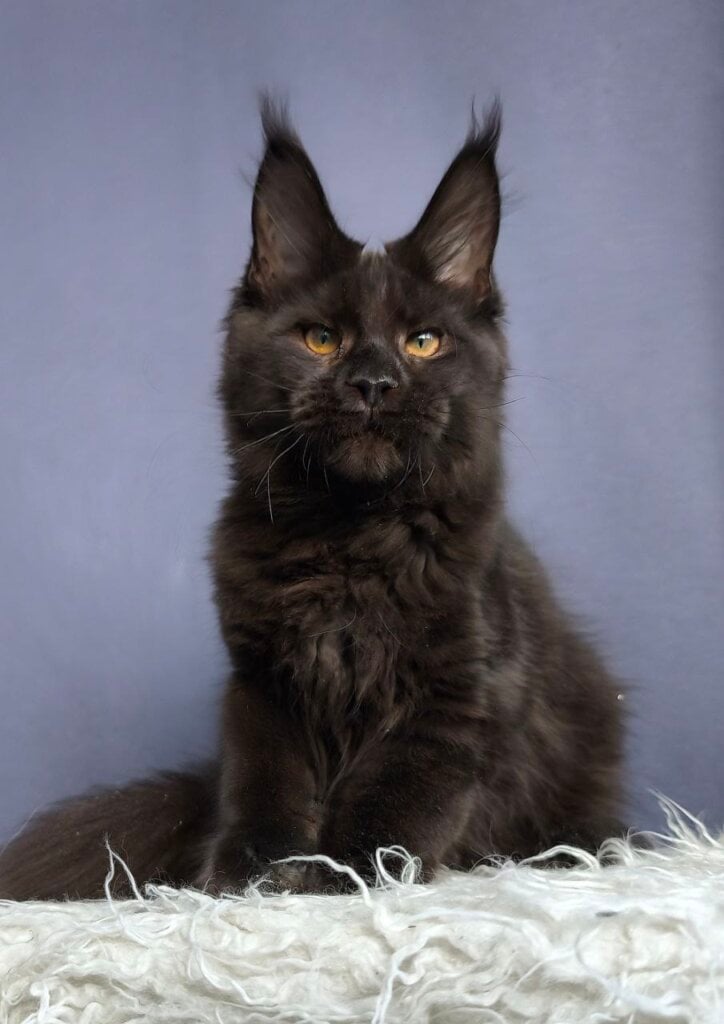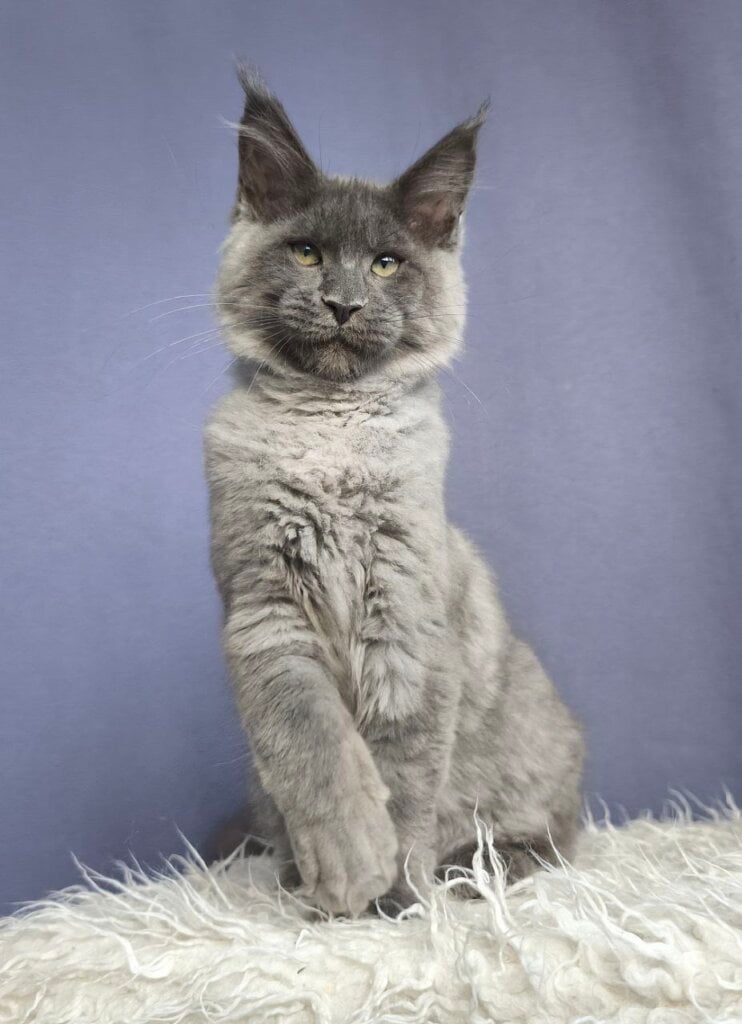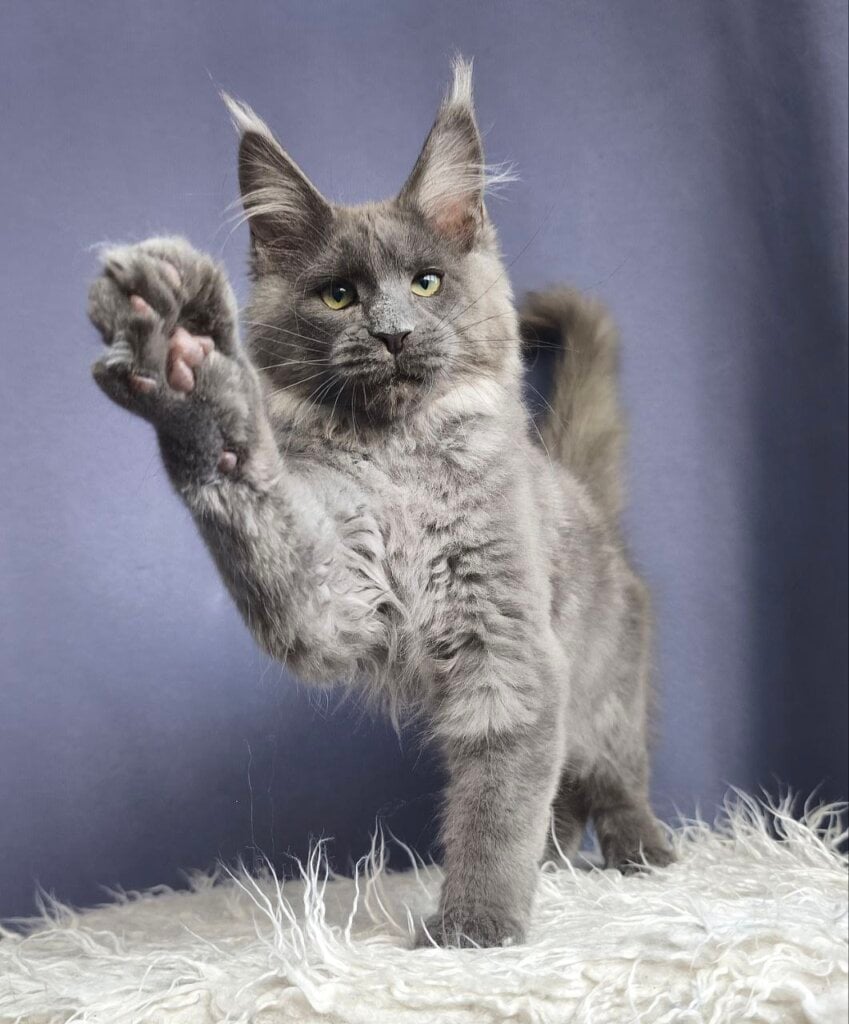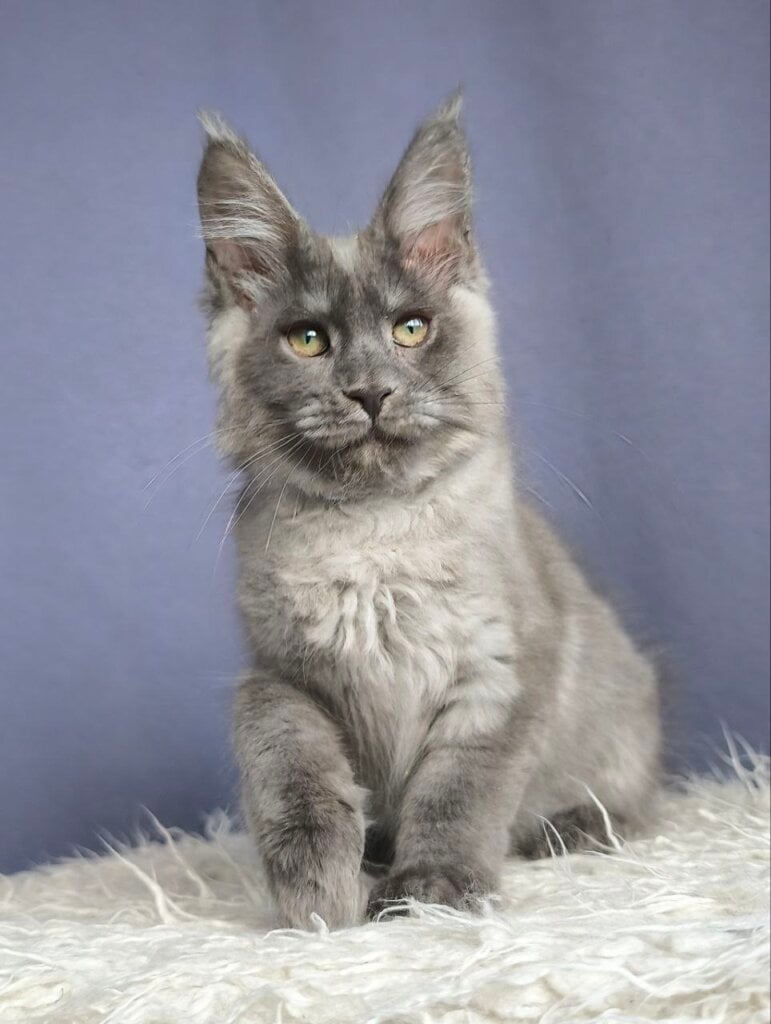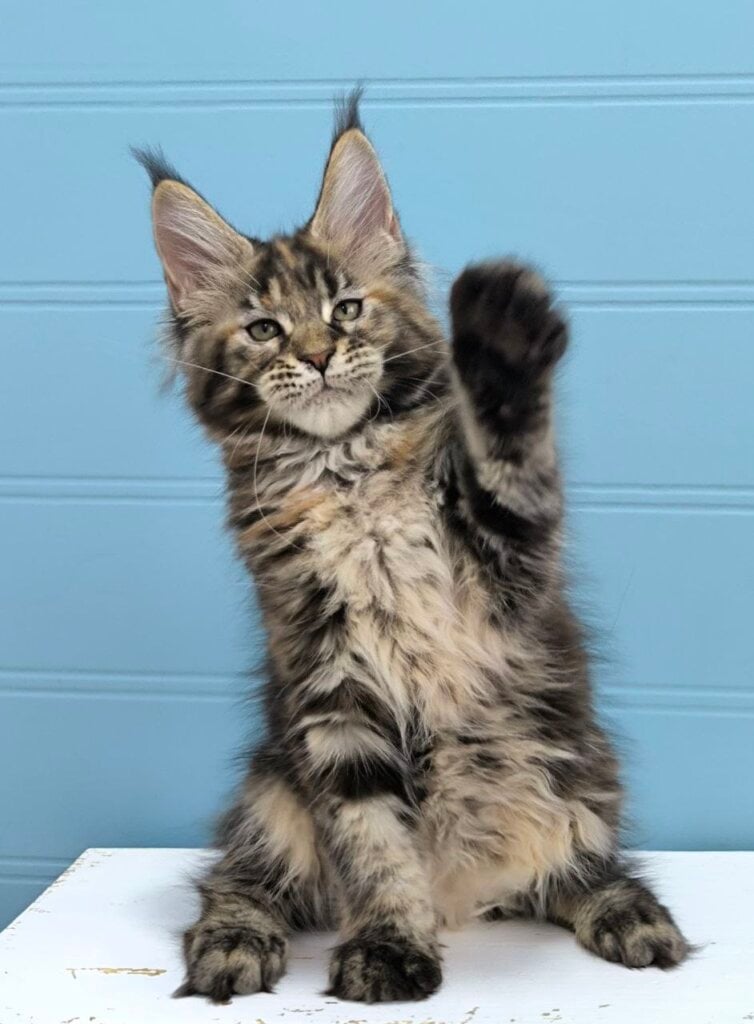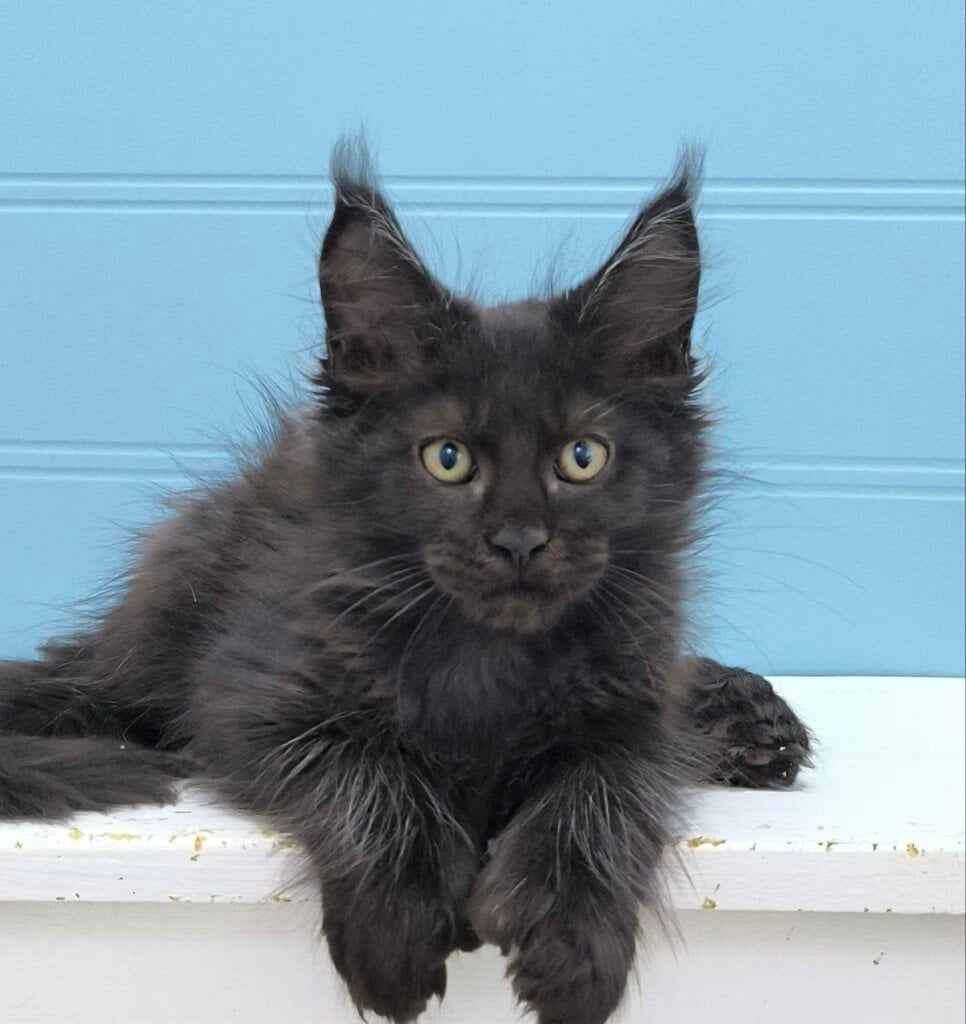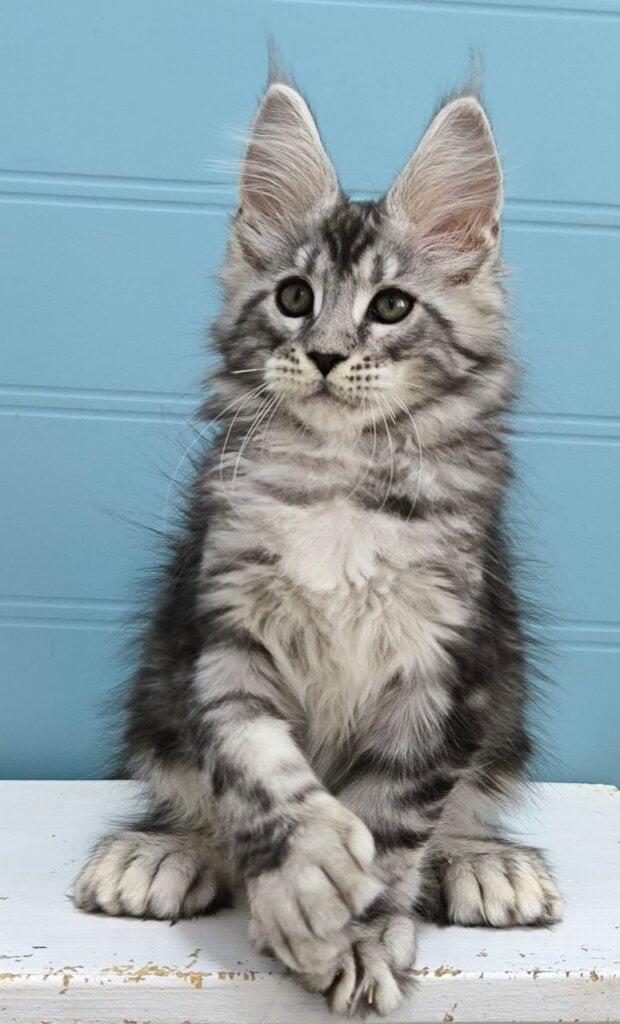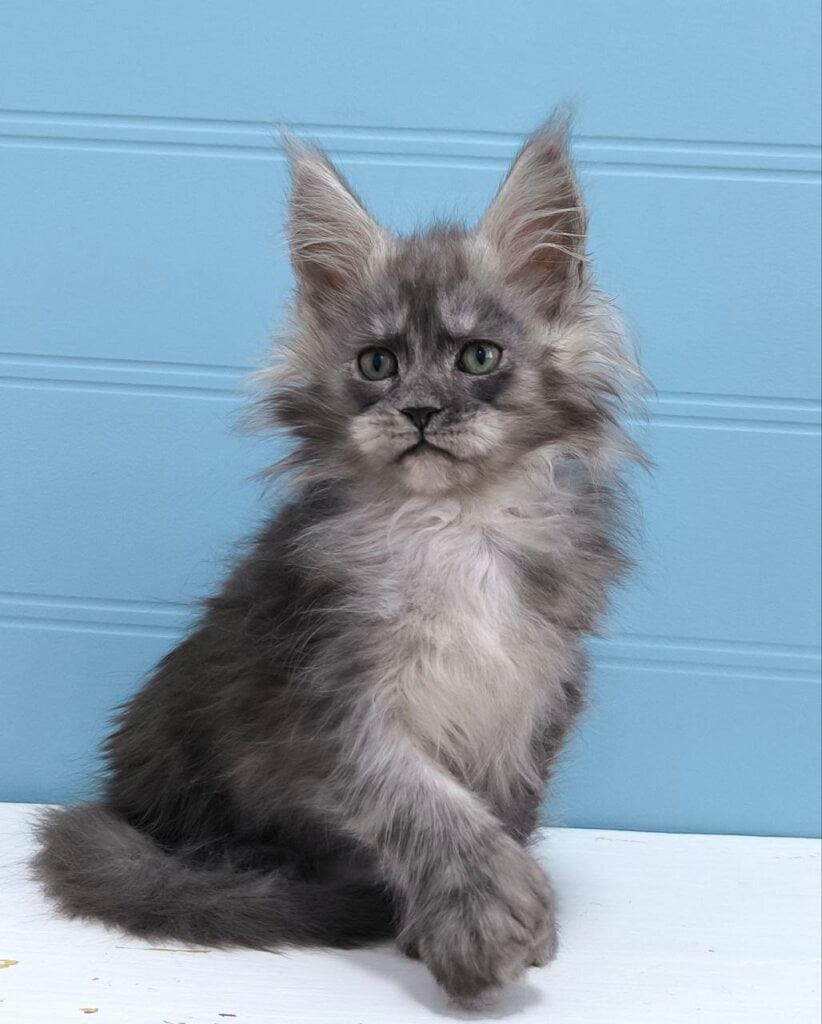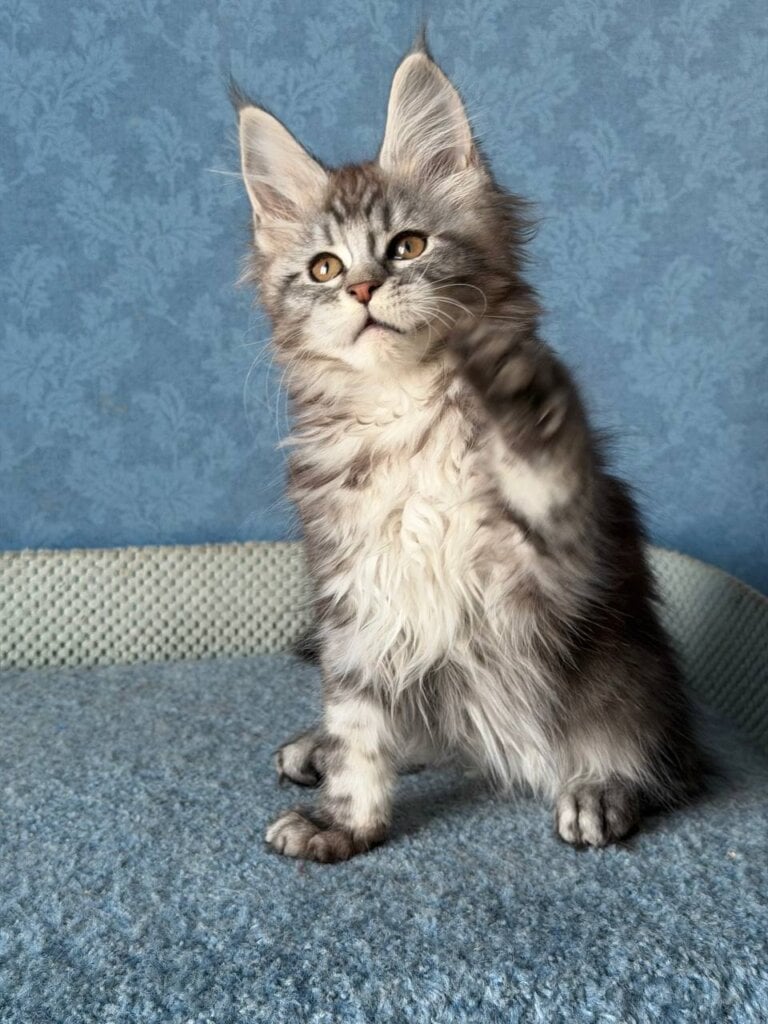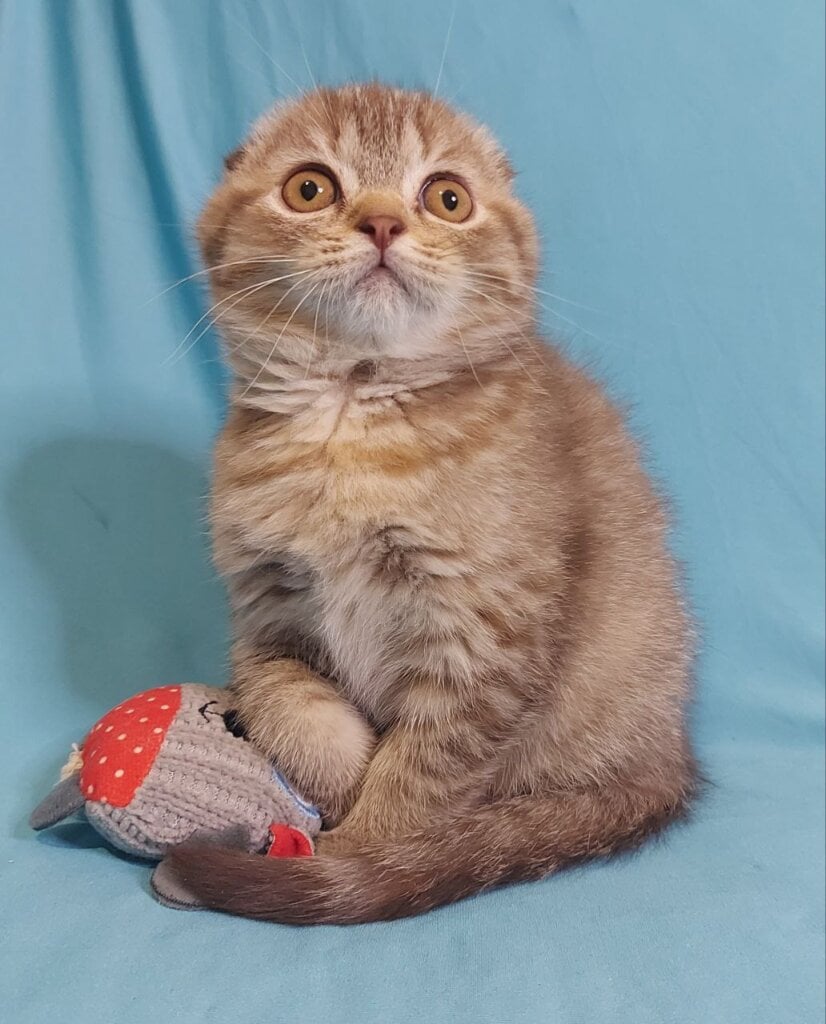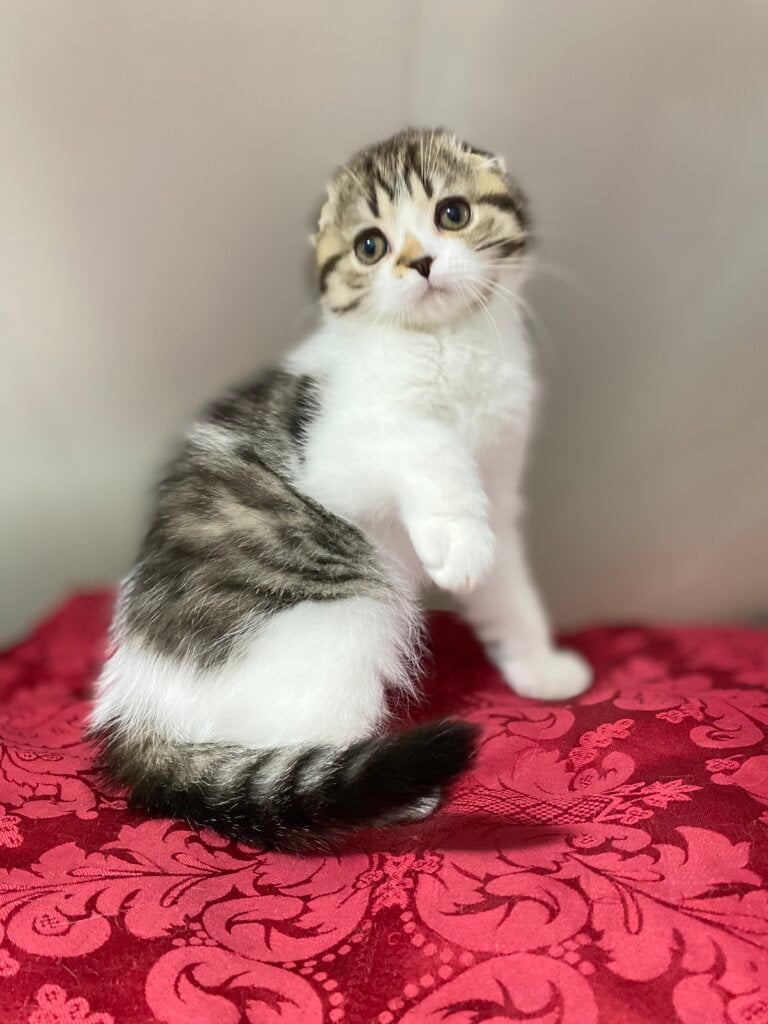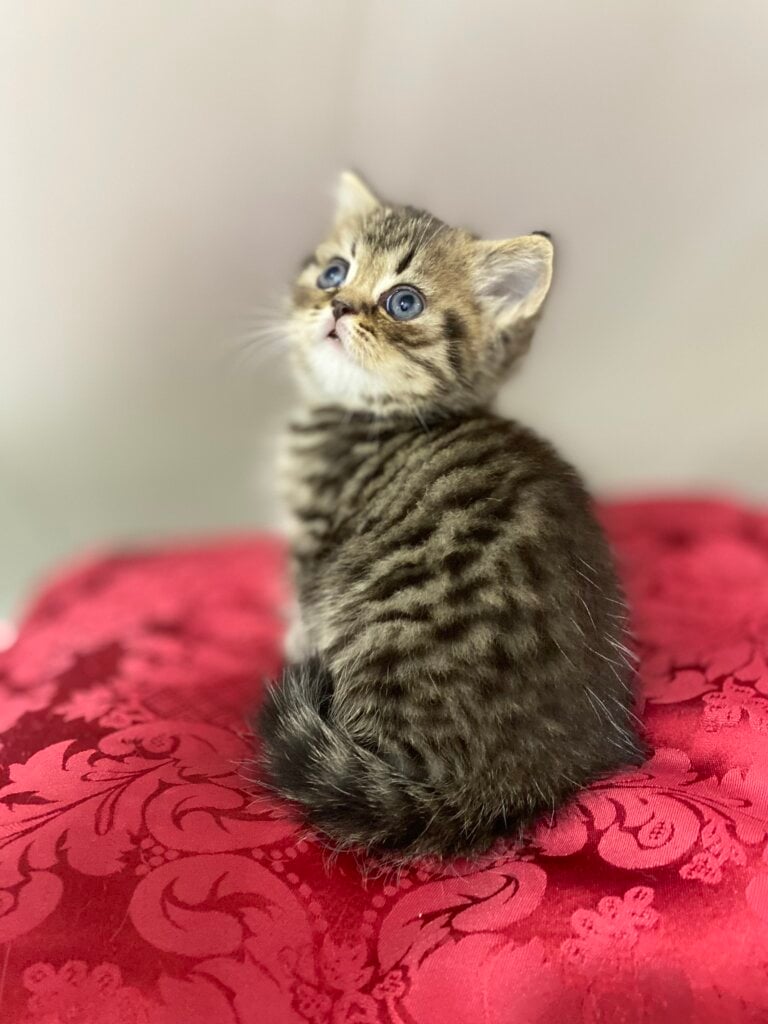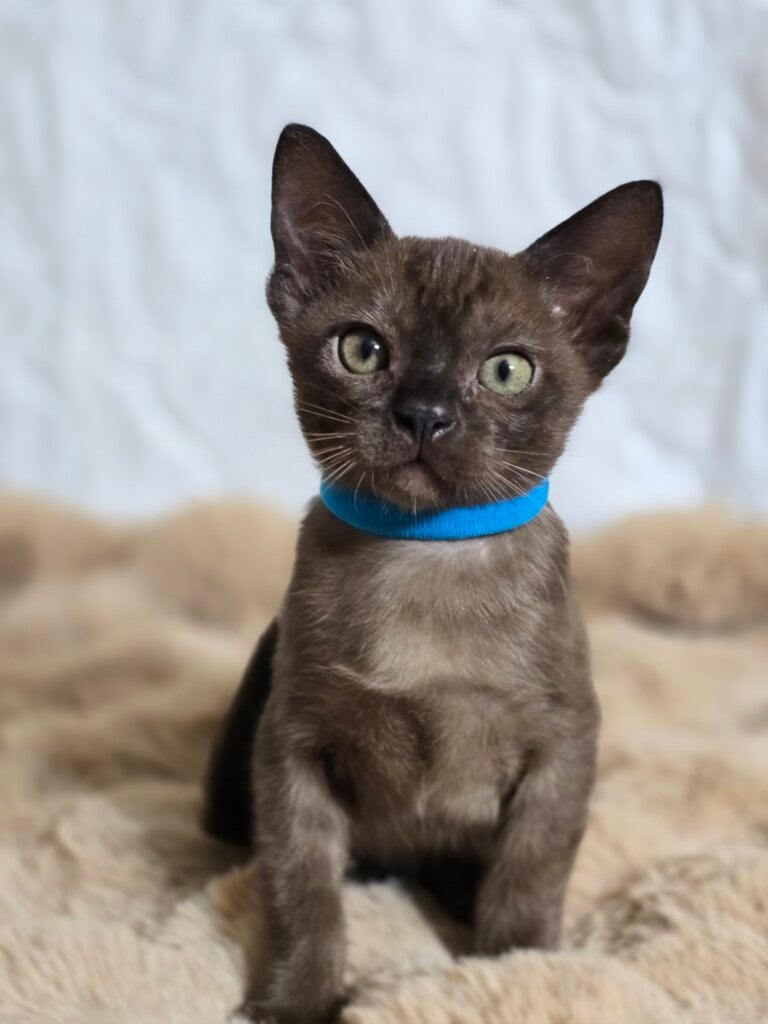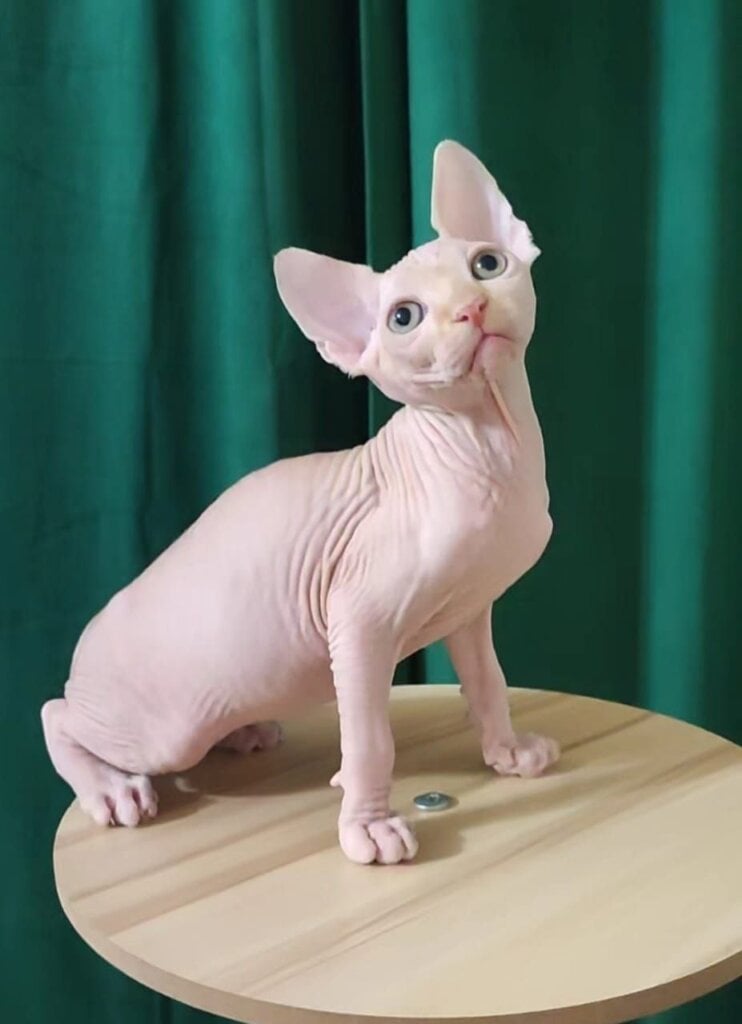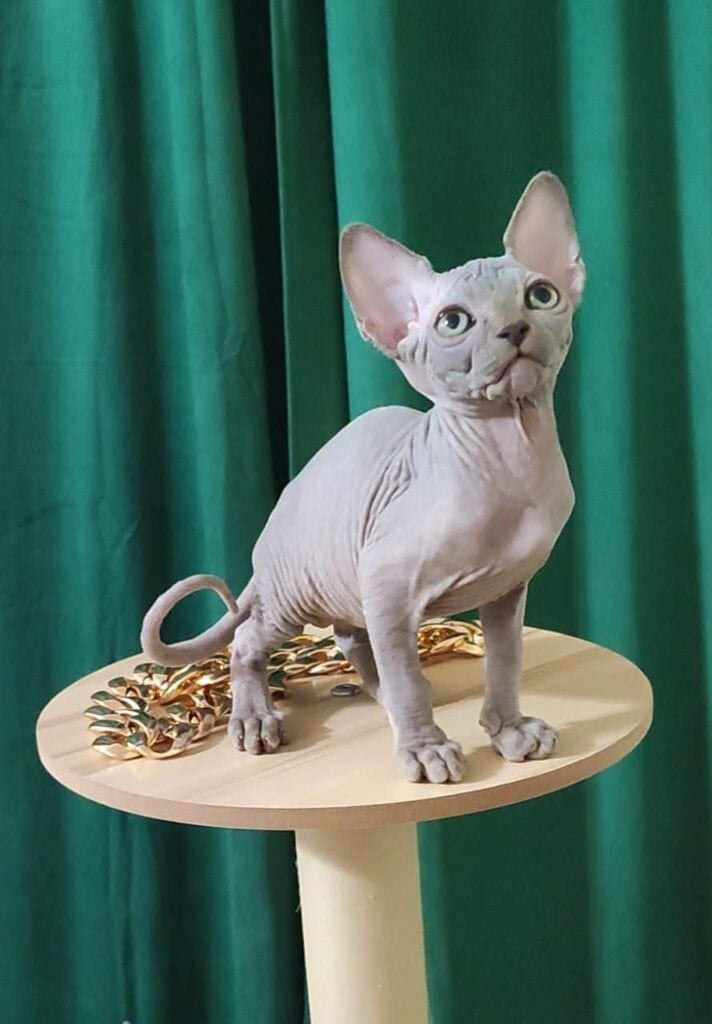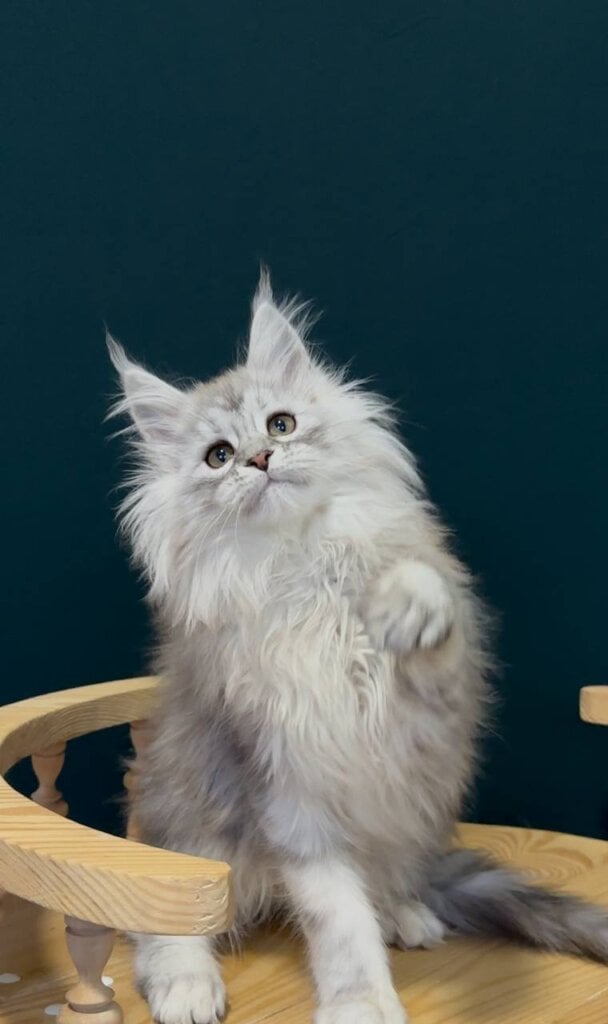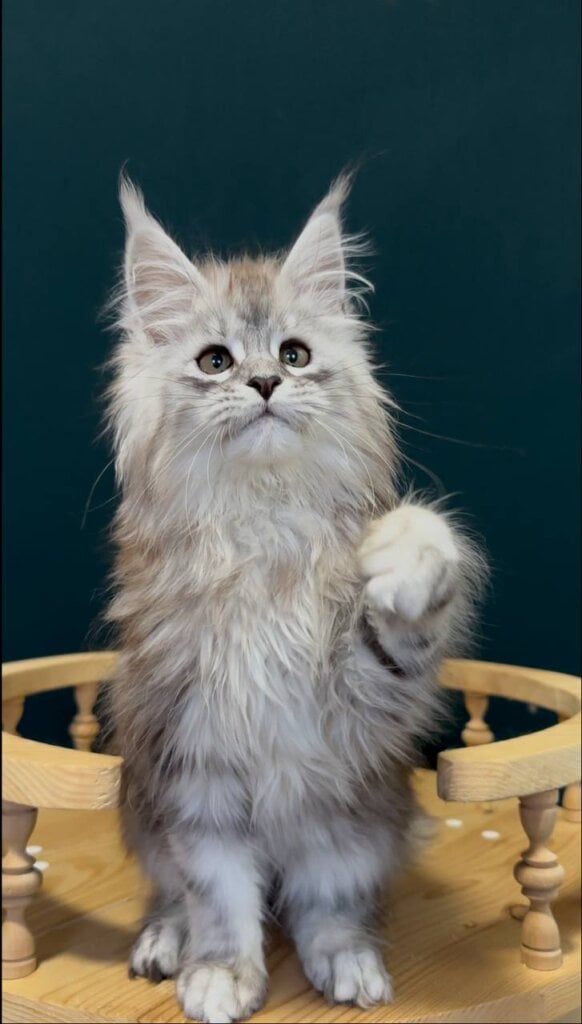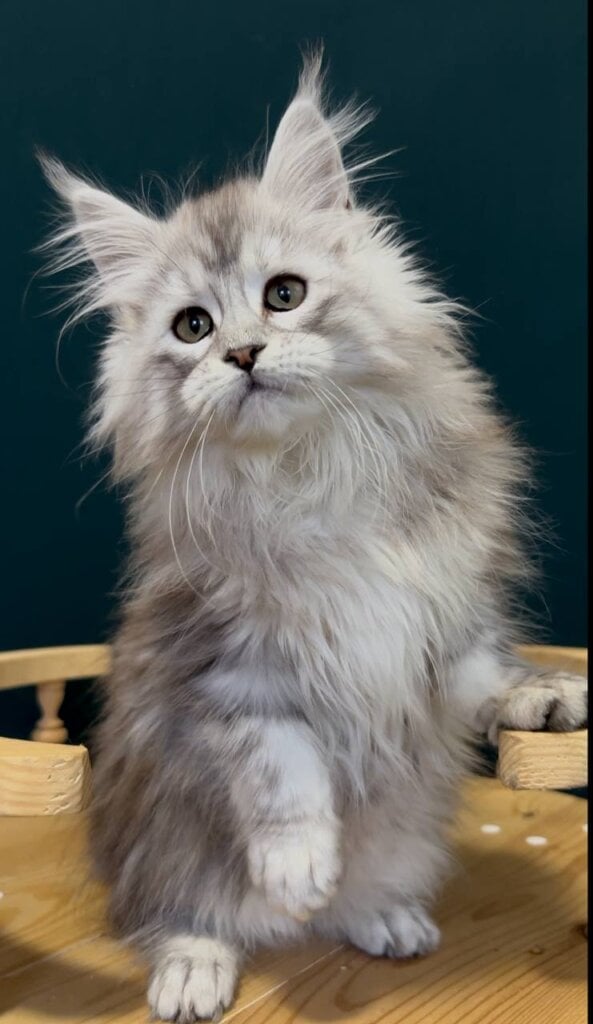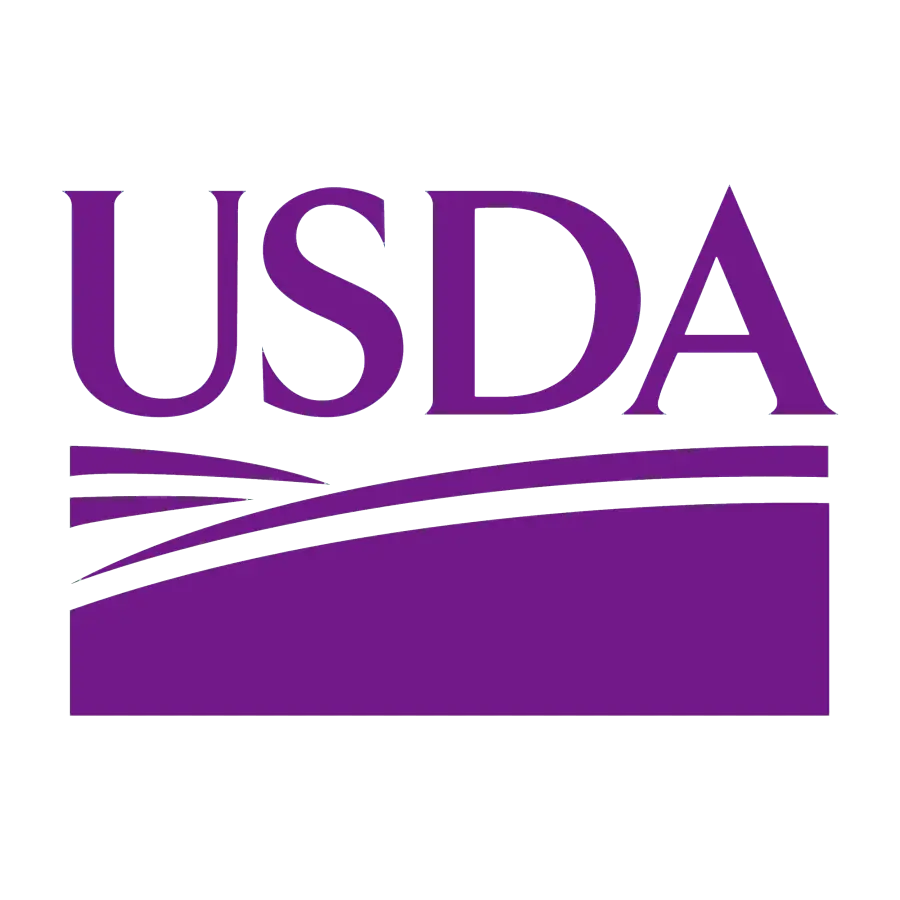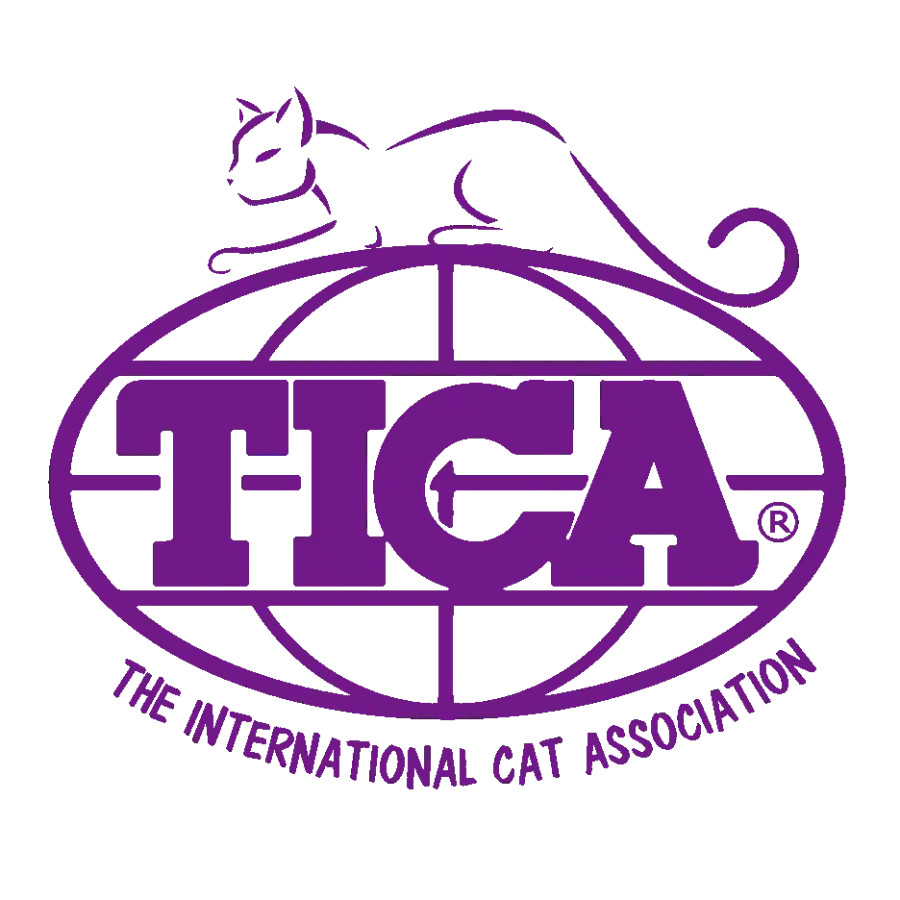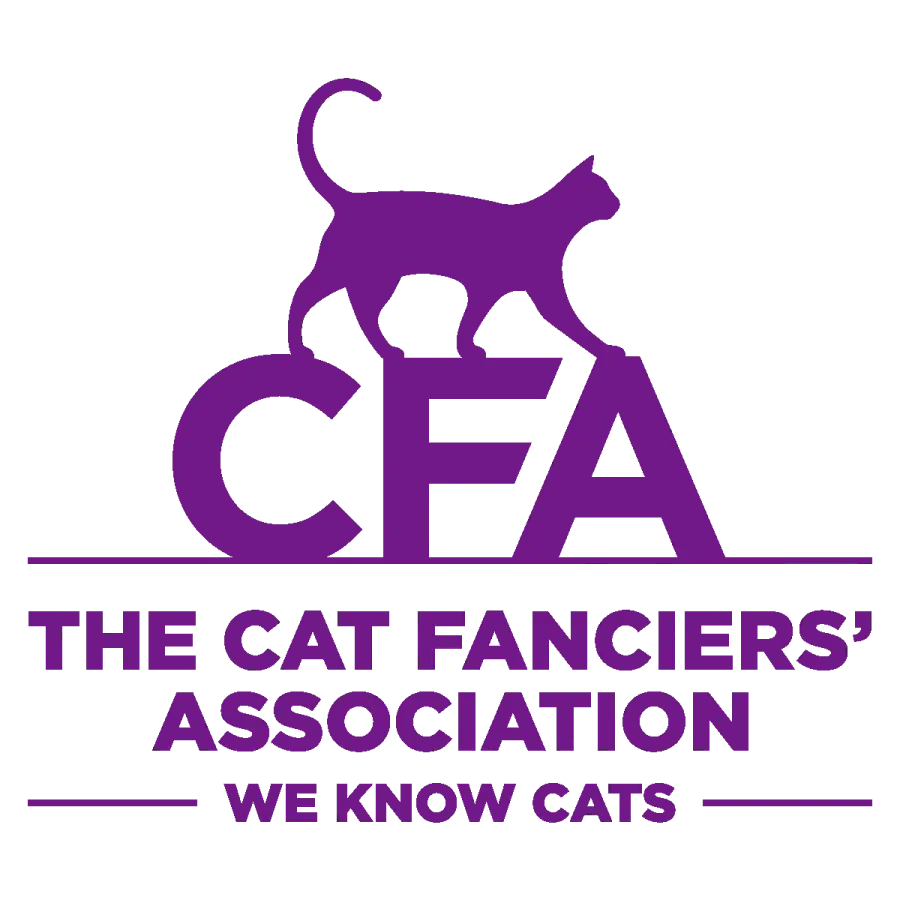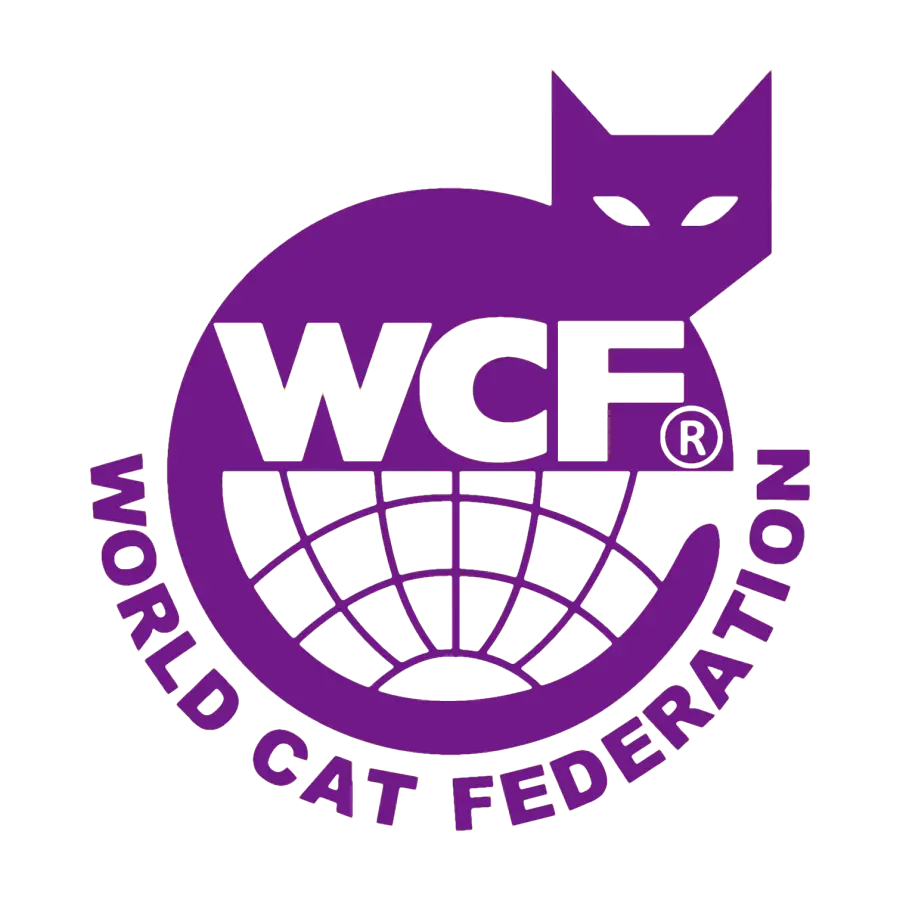Key Takeaways
- A Maine Coon’s diet should be rich in high-quality protein and fatty acids. Being such a big cat, they require the proper vitamins and minerals to maintain their size, energy, and overall health. Refrain from pet food that includes too many fillers and foods that can irritate the immune system.
- Maine Coon kittens require food formulated for kittens with increased protein and calorie levels to adequately support their growth. Give them smaller meals more often and switch them to adult food slowly as they grow up.
- Learning about your adult Maine Coon’s portion guidelines and how to keep his weight in check should be priorities. Select wet or dry food according to your cat’s tastes, hydration needs, and dental health.
- Senior Maine Coons especially enjoy softer food, such as wet food. Formulate their meals with nutrients to address concerns that come with aging, like joint health, digestion, and heart health. Provide them with the right nutrition that fits their evolving lifestyle.
- Just like with dog food, always read cat food labels carefully to ensure quality ingredients and guaranteed analysis. Skip the stuff with mystery or low-grade ingredients and focus on transparency and nutritional value.
- Healthy feeding practices, such as dietary rotation, appropriate supplementation, and monitoring food intake, can improve your Maine Coon’s overall well-being and prevent health issues.
Maine Coon Nutritional Needs
Maine Coons are big beauties with the softest of souls. They are quite different from other breeds when it comes to their nutritional needs. Their diet grows their muscular frame and energizes their fun spirit. Most importantly, it promotes their wellness throughout their entire life. When we take the time to understand these needs, we can be confident that we are giving these majestic animals the care they deserve.
Maine Coons do best on a nutrient-dense animal protein- and fat-based diet with little to no carbohydrates. Their muscular frames require a high-protein diet to support their lean muscle mass. Consider your ingredients – chicken, turkey, and fish are all high-quality protein sources that focus on their nutritional needs.
Fats, such as those found in salmon oil or chicken fat, provide necessary energy sources for Maine Coons. This energy is extremely important, especially during their playful periods. Kittens have even greater energy needs during their first 6-7 weeks of life. They require a lot of calories to sustain their fast-paced lifestyle during this pivotal period of development.
Adult Maine Coons need daily calories according to their activity level. They usually require 24-35 calories per each pound of body weight. All active cats enjoy climbing to high perches and enjoying interactive play sessions. Due to their energetic nature, they can require diets that are on the higher end of this range.
Keeping an eye on caloric consumption is especially important in preventing obesity. Most importantly though, it provides the energy they need to lead a vigorous and playful life. Their dietary needs necessitate taking into account breed-specific health issues.
Since Maine Coons are predisposed to heart disease, taurine, a very important amino acid, should be an important part of their diet. Cat foods which include taurine in their formula can reduce or eliminate this risk. Roughly 20% of Maine Coons experience food allergies or intolerances.
For them, restricted ingredient or hypoallergenic diets should do the trick. Since these diets cut out common allergens, they help to keep the cat’s digestive system in check. Of course, like all animals, their nutritional needs shift as they get older.
Kittens need really protein- and calorie-dense meals. At the same time, senior Maine Coons are best served by specialized diets that promote their joint health and reduce their risk of age-related conditions. Selecting life-stage-appropriate food is essential for keeping them happy and healthy at each stage.
What Defines Optimal Cat Food?
Choosing the best food for your Maine Coon is essential to ensuring they lead a long, healthy life. These regal felines deserve nutrition worthy of their majesty, and that means feeding them with purpose. Real, high-quality proteins along with essential nutrients are fundamental to their meals. Understanding what they’re putting into their diet is what allows them to thrive at any life stage.
High-Quality Protein Sources
Maine Coons are obligate carnivores, and they require a diet rich in protein to support their energy levels and their powerful physique. Their food should list protein as the very first ingredient, and while chicken is common, lean meats such as turkey or rabbit make awesome choices.
Wet food provides even more advantages. It’s a great source of hydration and typically contains lots of rich animal-based proteins. Though beef or chicken may sound like the obvious options, these standard proteins are known to be some of the most common allergens for cats.
Focusing on different protein sources like duck or lamb helps limit risks while still providing a cat’s complete nutritional needs. Kittens require protein like nobody’s business! Focus on their nutritional needs to help them grow until they’re about 8 to 12 months old.
Essential Fatty Acids Explained
Fat is an essential component of a Maine Coon’s nutrition, providing the concentrated energy necessary to fuel their active lifestyle. Ideally, fat content should be in the range of 25 to 30%, which is easily accomplished by feeding lean cuts of meat.
Among these, Omega-3 and Omega-6 fatty acids are vital for keeping your cat’s coat shiny, skin healthy, and inflammation at bay. Fish-based foods and supplements, including salmon oil, provide a great source of these essential nutrients. They assist in keeping a good balance of fats in your diet.
Vital Vitamins and Minerals
So, Maine Coons need a balanced diet rich in vitamins and minerals to strengthen their huge bone structure and health. Calcium and phosphorus contribute to healthy bones, and taurine helps promote a healthy heart and eyes.
Protein-packed, grain-free formulations typically provide these nutrients in their natural form without the use of added synthetics. Adding organ meats, especially liver, to their diet helps deliver important vitamins, including vitamin A and B-complex vitamins.
Limiting Fillers and Allergens
Maine Coons do not require carbohydrates in their diet, and excess carbs may cause obesity or gastrointestinal upset. Look for brands that are free of grains such as corn or wheat. Instead, look for grain-free options that highlight premium ingredients.
As with introducing any new food, watch for signs of allergies, such as itching or gastrointestinal distress. This is critically important if their diet includes widely consumed proteins like chicken or fish. For sensitive cats, making a switch to novel proteins is an easy fix.
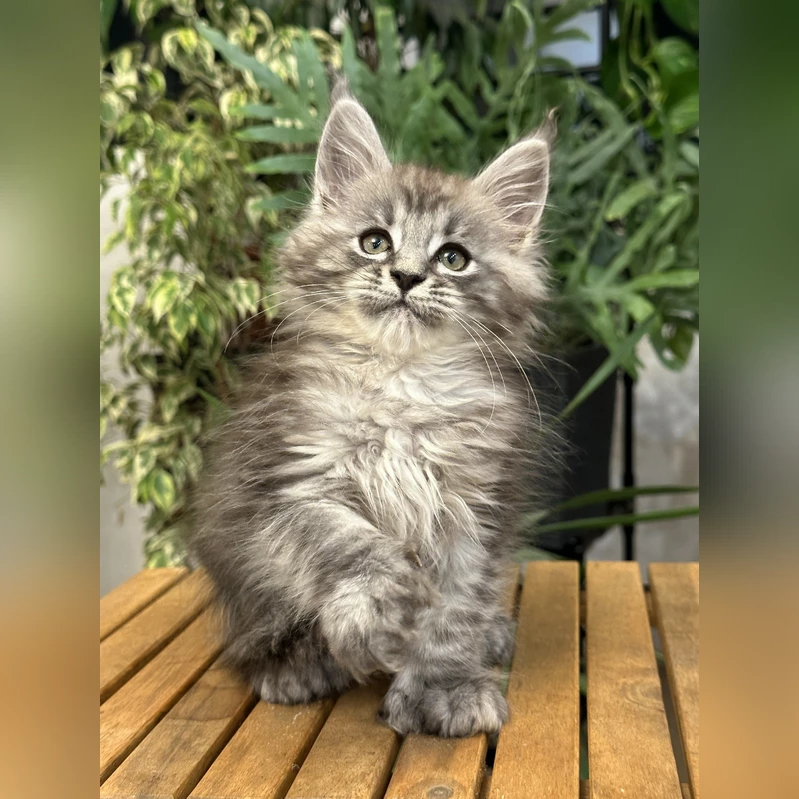
Maine Coon Kitten Diet
Learning to meet the nutritional requirements of Maine Coon kittens is key to promoting their rapid growth curve and dynamic energy level. These brightly hued, furry felines are just as captivating as they are intelligent and deserve a well-rounded diet that is tailored to their breed’s nutritional demands.
1. Kitten-Specific Nutritional Demands
Maine Coon kittens are obligate carnivores, as such they require a diet focused heavily on animal protein and fat. These nutrients are vital to the kittens’ explosive growth and development. For one, it fuels all of that energy required by their spirited Coon personality.
An average growing kitten requires about 20 calories per pound of body weight per day. This way, you can be sure that it is growing in a healthy way. Maine Coons develop at a slower rate than most breeds. Because they normally don’t reach their full adult size until three to five years of age, their nutritional needs remain high for a longer period.
High-quality kitten food rich in protein, such as chicken, turkey, or fish, combined with essential fats, ensures they develop strong muscles and bones. Steer clear of foods with a lot of carbs, since too many carbs could cause your kitten to gain weight in an unnatural way. Rather, look for formulas that provide complete and balanced energy derived from protein and fat.
2. Feeding Frequency for Kittens
For the first few weeks of life, Maine Coon kittens are exclusively fed mama’s milk. By the time they’re four to five weeks old, begin introducing a wet food formulated for kittens. This diet is gentler to their emerging teeth and growing digestive tract.
Add a combination of moist paté style food with dry kibble – 50/50 – at approximately six to seven weeks. This unique combination gets your puppy used to experiencing a variety of textures. It’s best to feed kittens small meals several times a day so they receive the constant flow of energy required.
For example, giving them four to five meals a day when they’re little satisfies their nutritional requirements without going overboard. As they get older, this frequency should be slowly decreased over time.
3. Transitioning to Adult Food
Combined with their large size, Maine Coons take two to four years longer to fully mature. Once they reach 12 to 15 months of age, you can gradually switch them over to adult cat food. Making gradual changes to their diet, at least 7 to 10 days, helps avoid digestive upset.
Look for high-protein adult food which keeps meeting their larger size and energy requirements.
Adult Maine Coon Feeding Guide
Feeding an adult Maine Coon is all about maintaining that optimal balance, keeping them healthy, active, and youthful. These cats are big, playful, and have specialized nutritional requirements that make them different than smaller breeds. Understanding portion control, maintaining a healthy weight, and choosing the right type of food are key to supporting their well-being.
1. Portion Control Strategies
Feeding Maine Coons, as we previously discussed, due to their larger stature, Maine Coons do have larger appetites. With any type of food, portion control is key to prevent overfeeding.
As a rule of thumb, an adult Maine Coon should get around 20 calories per pound of body weight each day. For instance, a 15-pound Maine Coon would need approximately 300 calories per day. More active cats may need closer to 24-35 calories per 500 grams (1.1 lb) of body weight.
Watch their activity to make sure they’re receiving the right calories! Feeding scheduled meals rather than free-feeding ensures they are eating the right amount and not gorging themselves in one sitting.
We recommend weighing food with a kitchen scale to avoid fluctuating portion sizes, particularly when switching between brands or varieties of food.
2. Maintaining Ideal Weight
Keeping adult Maine Coons within their appropriate weight is crucial. It not only helps them carry their hefty frames but goes a long way to avoiding joint problems.
Activity is a major factor in calculating caloric requirements. A Maine Coon that is energetic, playful, and active will need more calories. A less active Maine Coon requires a lower calorie intake to maintain optimal health.
Combining portion control with consistent physical activity aids in achieving this equilibrium. It’s crucial to monitor their body condition.
Feeling their ribs without excess fat and observing a visible waistline can indicate a healthy weight. If excessive weight gain is a worry, speak with your vet. They can assist you in tailoring your pet’s plan to meet their needs or reviewing low-calorie, high-protein recipes.
3. Wet vs. Dry Food Debate
Wet and dry food both present distinct benefits. When you put them together, you can have the best of both worlds!
Feeding wet food provides extra hydration which is beneficial for kidney health. It’s usually more protein-rich, fulfilling the dietary requirement of your Maine Coons since they’re obligate carnivores.
Dry food is convenient and does have some dental health benefits. 60% animal protein meets the minimum standard, no matter the form.
This helps make sure they’re getting the right balance of nutrients that are required for muscle preservation and energy production.

Senior Maine Coon Nutrition
Like people, as Maine Coons get older their nutritional needs change in order to maintain good function and quality of life. Senior Maine Coons, typically those seven years and older, require special dietary considerations. These diets are designed to meet their special needs due to changes in metabolism, activity levels, and other possible health issues.
Finally, we need to hone in on their special dietary needs. This will go a long way toward keeping them healthy and active as they enter their golden years.
Adjusting Diet for Older Cats
Senior Maine Coons thrive on diets formulated to meet their changing metabolism and activity needs. For instance, a 13-year-old Maine Coon will need less food than a younger feline. Generally speaking, senior kitties need around 20 calories per pound of body weight each day.
This is important for them to maintain a healthy weight. It further protects against excessive weight gain, leading to diabetes and undue stress on joints. This is why incorporating high-quality, digestible animal protein into their diet is essential.
Shelley reminds us that it’s important to preserve muscle mass, which we lose naturally as we age. Reducing carbohydrates aids in maintaining a healthy weight and keeps blood sugar levels stable. Royal Canin Maine Coon Adult Dry Food is the breeder’s recommended favorite by Maine Street Coons.
It’s nutritionally tailored to meet the needs of mature felines 15 months and older. For seniors, this kibble can be fed in combination with wet food to boost seniors’ moisture levels and add some texture and flavor variety.
Addressing Age-Related Health Issues
Senior Maine Coons often develop health issues like arthritis, kidney disease, or hypertrophic cardiomyopathy. A nutrition-rich diet is essential. For example, diets that include joint-supporting nutrients such as glucosamine and chondroitin have been shown to reduce discomfort and improve mobility.
All adult Maine Coons are at risk of developing a Taurine deficiency, especially when fed grain-free diets. Among its many essential functions, taurine is important for cardiovascular health. Just adding it to your meals can be an effective way to combat and lower the risk of heart disease.
Monitoring how much they eat and what they eat can go a long way toward making a senior Maine Coon’s life more enjoyable.
Soft Food Options for Seniors
Soft food, or wet food, is a great option for senior Maine Coons, particularly if they have dental problems. Introduce one or two cans of wet food into their daily menu. This will help to make sure they stay properly hydrated while receiving important nutrients!
Providing constant access to running, clean water is key in keeping the kidneys strong and avoiding dehydration for these felines!
Breed-Specific Health Considerations
Maine Coons are perhaps the most distinct breed, identifiable by their enormous size and amiable disposition. They require specific nutritional care at the cellular level to ensure their well-being. Their predisposition to certain health issues underscores the need to choose the right diet to support their overall health.
Joint Health and Diet
Maine Coons are more susceptible to joint-related problems such as arthritis, particularly as they get older. Not only does their large frame put extra strain on their joints, but keeping them trimmed down is important to relieving that weight burden.
Foods rich in omega-3 fatty acids, such as those derived from fish oil or salmon, can help reduce inflammation and support joint health. Adding glucosamine and chondroitin to their diet further enriches cartilage and enhances their mobility.
Maine Coons are slow to mature, taking 3-5 years to achieve their full physical development. Considering these years, a high-protein diet rich in essential amino acids is key to build new muscle tissue and preserve bone density.
Selecting cat food that contains more than 50% animal-based protein supports your cat’s muscles and joints. This will help you minimize the risk of future fractures or other bone weakness as they age.
Digestive Sensitivity Solutions
As obligate carnivores, Maine Coons enjoy a low-carb, high-protein diet. Feeding too many high-carb foods can disturb digestion, resulting in issues such as bloating, lethargy, and even obesity.
A diet with less than 3% carbohydrates is recommended to keep their gastrointestinal system functioning optimally. Offering them higher quality, more easily digestible proteins with real chicken or turkey helps them absorb the nutrients they need without causing digestive distress.
To maintain a healthy weight, you should strive for a daily intake of 36 to 45 grams of high-quality protein. This equals roughly 4 grams per kilo of your body weight. Inclusion of dietary fat in the form of fish or poultry protects against dry skin and keeps a shiny coat.
Heart Health Support
Maine Coons are predisposed to heart conditions, including hypertrophic cardiomyopathy. Diets supplemented with taurine, an amino acid critical to heart function, can greatly lower the risk of these conditions.
Wet cat food varieties deliver more taurine, which aids healthy heart function. What’s more, they’ll help keep your cat hydrated, so they’re a no-brainer for your kitty!

Decoding Cat Food Labels
Feeding Maine Coons the right food takes some thought and research. You can’t just pick up any bag or can labeled premium and expect a high-quality food. Understanding cat food labels is key to providing your cat with the best possible nutrition designed specifically for them.
Understanding each key component will simplify and clarify the process, making it more enjoyable and impactful.
Understanding Ingredient Lists
The second step in determining whether or not a cat food is high-quality is reading the ingredient label. In a perfect world, a named source of muscle meat like chicken, turkey or beef would top the ingredient list. That means the food is high in protein, which is exactly what a Maine Coon needs to stay healthy since they are obligate carnivores.
Organ meats, such as liver, can be beneficial sources of nutrients, but they should be considered supplements, not the main protein source. Steer clear of products that employ feed-grade meat, which is usually too over-processed and devoid of proper nutrition.
For instance, words such as “by-products” or “meal” appearing in the ingredients list may indicate protein sources of inferior quality. Cats need good-quality sources of protein. Making this a priority in their food will help fuel their unique large body structure and active metabolism.
Labels that say “Made With Organic Ingredients” refers to products in which, at a minimum, 70% of the ingredients are organic. This is an excellent indicator of higher quality. As a general rule, though, take a close look at the entire ingredient list and watch out for fillers and artificial additives.
Guaranteed Analysis Breakdown
Guaranteed analysis gives you an idea of the nutrient content of the food. For Maine Coons, veterinarians will typically advise feeding wet food rather than dry. Wet food offers more moisture and superior protein balance.
For a quick fix and to prevent digestive problems such as vomiting or diarrhea, keep carbs below 10% of your calories. Too many grains or vegetables can cause these issues. Be wary of fat too. Typically, a dull coat will be one of the first signs of a fat deficiency.
This in turn can cause significant long-term health problems, including arthritis or dental diseases. Especially when compared to dry foods, wet ones – including canned varieties – are more likely to give your pet a great blend of healthy fats.
Spotting Red Flags
Just a few red flag warnings can help you determine if a food is a good fit or not. Specifically, foods with artificial preservatives, flavors, or colors would be disqualified. Even trendy, natural options like canned Wellness can fail here in their hygiene or ingredient quality.
Look for clear labeling. First, beware of labels that don’t provide straightforward information – terms like “meat derivatives” should raise a red flag.
Implement Healthy Feeding Practices
Feeding a Maine Coon requires your complete focus. Providing for their specific dietary requirements is essential to keeping them elite athletes, with the strength and endurance that comes from their powerful body. Due to their bigger builds and energetic lifestyles, these animals require a diet that is high in targeted nutrients to help power them through their day.
Below, we outline some key practices to help you better understand what to look for so you can choose the best product for your cat.
Dietary Rotation Benefits
Providing dietary diversity prevents your Maine Coon from being bored at mealtimes. It makes sure they get an array of different nutrient constituents, too. Transitioning between high-quality wet and dry cat food offers various textures and flavors, keeping mealtime interesting for your cat.
It reduces the likelihood of food monotony, which could happen if they ate the same product every day. Choose food with at least 30% animal protein apparent on a guaranteed analysis.
Healthy Maine Coons need a high-quality diet that helps them maintain their muscular bodies and energetic nature. Look for products that avoid additives, grains, cereals, and veggies. These ingredients can be hard for cats to digest and contribute to excess carbohydrate consumption.
Instead, animal fat is a better source of this energy, crucial to their very high level of activity.
Supplementation Considerations
A high-quality, balanced diet should meet the majority of your Maine Coon’s nutritional needs. Supplements can be beneficial for specific health conditions or during specific stages of life, though. Maine Coon kittens, for instance, need more energy than average to grow up healthy.
Customized additions, like omega-3 fatty acids, encourage a healthy, gleaming coat and help with joint health. Taurine is essentially vital to cardiovascular health and vision.
Always consult your veterinarian before starting any new supplements to make sure they fit your cat’s individual needs. Don’t over-supplement, which can cause imbalances or put unnecessary stress on your cat’s body.
Monitoring Food Intake
Monitoring your Maine Coon’s feeding behavior daily is important. They shouldn’t abruptly stop wanting a food they used to enjoy, as this can be a sign of a health problem.
Overfeeding is an issue too, because sugar and starch-filled diets can cause them to gain weight fast. Use appropriate portion sizes based on their age, weight, and activity level.
